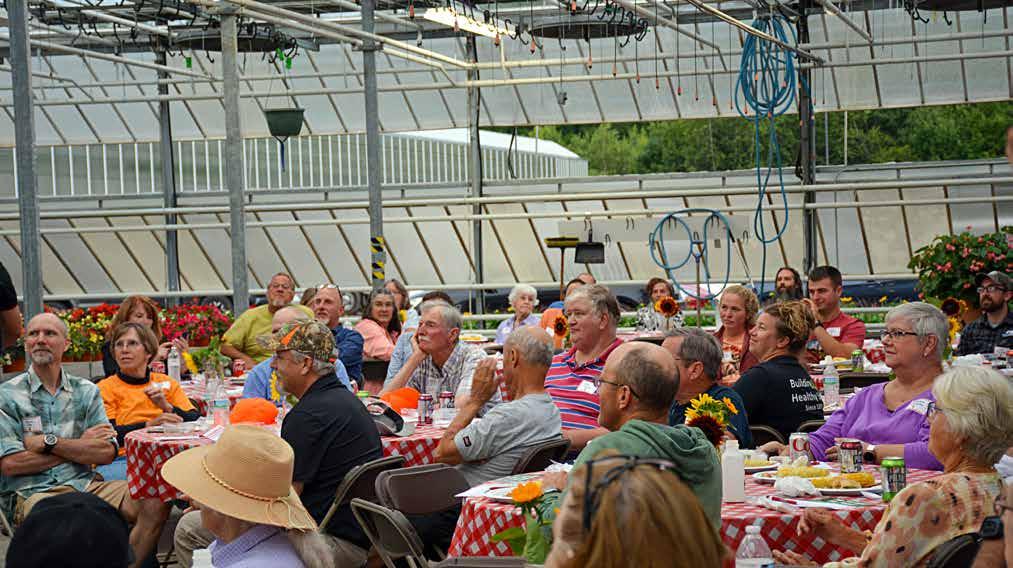

2024 Legislative Review
by Rob Johnson, NHFB Policy Director
Following is the disposition of bills followed by Farm Bureau in the New Hampshire Legislature this year. Following a bill’s number and description, in bold type, is Farm Bureau’s position (if we have one) on the bill.
Bills Signed into Law
HB 68-FN, adopting the uniform real property transfer on death act.
Adopts the Uniform Real Property Transfer on Death Act, enabling property owners to create transfer on death deeds that designate who will inherit their real property upon their death, avoiding probate proceedings.
Effective: 7/1/24, Chapter Law 1 (of the Laws of 2024). Support
HB 558, (New Title) requiring the department of energy to initiate a microgrid study.
The Department of Energy is tasked with investigating the potential benefits, risks, and key considerations around developing a framework for electricity microgrids in the state. Findings and recommendations are due no later than one year after the study is initiated. The report will provide guidance to the Legislature and Public Utilities Commission on developing a microgrid pilot program that balances economic development, grid stability, security, costs, and potential impact on rates for existing utility customers and microgrid participants.
Effective: 7/13/24, Chapter Law 10.
NHFB & NHTOA held the 2024 Summer Picnic at D.S. Cole Growers in Loudon, NH on August 8 th. The evening featured a greenhouse tour, local foods, and gubernatorial candidates “stump speeches.” Read more on page 14.


Photo by Denis Ward

BOARD OF DIRECTORS
EXECUTIVE COMMITTEE
Joyce
1st
2nd
2nd
Ben
Young
Vacant
Erick Sawtelle
Henry Ahern
& Poultry
Joyce Brady (Acting)
Ernie Vose
The Communicator
Bringing News to NH Farm Bureau Families
The opinions expressed within this publication are not necessarily those of the New Hampshire Farm Bureau.
The Communicator is published six times per year, by the New Hampshire Farm Bureau Federation. Subscription comes with membership. It is received in the homes of over 3,000 NHFB members and stakeholders Presorted standard postage paid at Manchester, NH.
Deadlines for submissions, advertisements, press releases, and calendar listings are the first Friday of the month for the following month’s issue.
For advertising information contact the NHFB office at 603-224-1934.
New Hampshire Farm Bureau Federation 295 Sheep Davis Road | Concord, NH 03301 603.224.1934 | nhfarmbureau.org
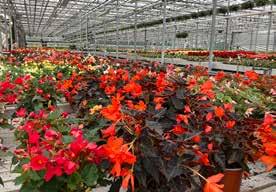
in Loudon on August 8, 2024. Members visited with each other and NH gubernatorial candidates gave stump speeches. by Leandra Pritchard
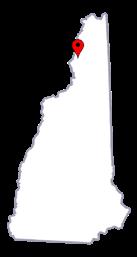
NOTES FROM THE NORTH
By Joyce Brady, President New Hampshire Farm Bureau Federation
I have been representing NHFB in many different places over the past few months. On June 26th I joined Senator Shaheen and a host of others for a tour of North Country Growers hydroponic greenhouse facility in Berlin. The founders, along with their management and operations chiefs, gave us a tour of Phase 1 of the project – a 10-acre greenhouse and work hall. Their first harvest of salad greens was this past spring.
July 10th & 11th was the AFBF Council of state Farm Bureau Presidents meeting in Washington, D.C. where I also made a couple of visits to Capitol Hill. My first stop was at Representative Pappas’s office where I spoke with his staffer Paige Henderson. I then got to meet with Senator Hassan’s staffer Tanner Bielefied Pruitt. One thing I made sure to do was ask Ms. Henderson to thank Rep. Pappas for his vote last December in favor of the Whole Milk for Healthy Kids Act, enabling whole milk to be served in our schools.
During the Council of Presidents sessions Senate Agriculture Committee Chair Debbie Stabenow (Michigan), Senator Ag Committee Ranking Member John Bozeman (Arkansas), and Representative Jim Costa (California) were guest speakers who all spoke about the Farm Bill. Rep. Costa, a member of the House Committee on Agriculture as well as San Joaquin Valley farmer and 30-year member of Farm Bureau, also spoke about the importance of our role as an organization. In addition, he touched upon the impact Prop 12 has had in California. Due to an increase in pork product prices induced by Prop 12, consumers are now purchasing bacon by the slice. (Passed in 2018 and upheld earlier this year by the U.S. Supreme Court, Proposition 12 requires all pork products sold in the state to come from pigs raised using California housing standards.)
In mid-July the North Carolina Farm Bureau’s Board of Directors were on a Northeast farm tour. They spent a couple days in Maine, then stopped in New Hampshire before traveling to Massachusetts. I was able to meet up with them when they visited Coppal House Farm in Lee. John Hutton gave
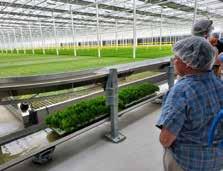
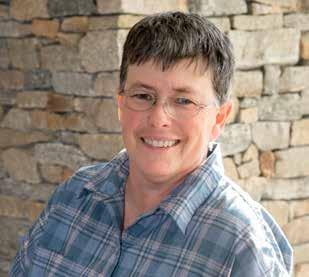
us a tour of his diversified operation, where the sunflowers were just starting to bloom (a week early). The next stop was also in Lee at Flag Hill Distillery & Winery. After the tour we dug into a charcuterie board to go along with wine tasting.
July 24th–26th Rob Johnson and I attended the Northeast Farm Bureaus Presidents’ and Administrators’ Conference in Mystic, Connecticut. We spent quite a bit of time discussing membership and shared legislative “wins” experienced this year in each state. (See photographs from the conference on page 18.)
I returned home in time to meet up with the Kentucky Farm Bureau’s Board of Directors, who were also on a Northeast farm tour that brought them to Coos County! I met up with them at Fuller’s Sugarhouse in Jefferson. We had a nice walk up into the adjoining sugarbush, an over 700 acre leased parcel from the Town of Randolph.
On August 8th we held our Summer Picnic with the Timberland Owners. We had four gubernatorial candidates give stump speeches - standing on an actual stump - and answer questions. We had a great venue at D.S. Cole Growers in Loudon, great attendance, and rain held off until the end of the evening.
American Farm Bureau Federation (AFBF) President Zippy Duvall has declared this to be the year of the county Farm Bureau leader. He is hosting Zoom “Townhall” meetings with county Presidents - which has never been done before. President Duvall wants our county leaders to know their importance to the organization. With this in mind, I reached out to AFBF about our state annual meeting and...PRESIDENT ZIPPY DUVALL IS COMING TO OUR ANNUAL MEETING! It is being hosted by Strafford County Farm Bureau in Durham this year. It is being held the UNH campus on Saturday, November 9th. Look for details on the front and back pages - save the date.
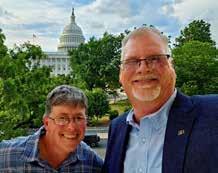
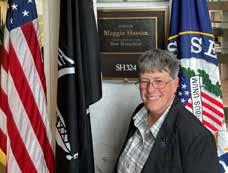
Elicia Pinsonault, New England Dairy
NEW! Producers of Other Edibles Listing.
. 7 New NHFB member listing for other edibles, is included with the Meat, Hay, Ag Products & Services, and Fruit & Vegetable Directories on pages 6-8.
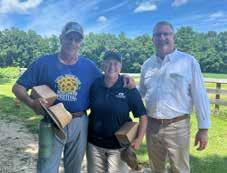
Carolina & Kentucky Farm Bureau leaders made trips to New Hampshire this summer. President Brady was able to join each group during their visit. (Left) at Coppal House Farm in Lee. L-R: John Hutton, Joyce Brady, NCFB President Shawn Harding.
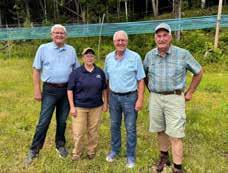
New Hampshire Farm Bureau President Joyce Brady
The North Country Growers facility is New England’s first greenhouse utilizing combined heat and power (CHP) technology. It is powered using natural gas. Photo by Robert Johnson.
Joined on Capitol Hill by New Jersey Farm Bureau President Allen Carter. Photo courtesy of Allen Carter.
North
(Right) KTFB at Fuller’s Sugarhouse. L-R: Mark Haney, Joyce Brady, Eddie Melton, Dave Fuller.
Photos courtesy of NCFB & KTFB.
Entrance of Senator Hassen’s office in the Hart Senate Office Building. Issues discussed were OSHA’s proposal to establish a federal heat standard in the workplace and Farm Bureau’s support for freezing the Adverse Effect Wage Rate. Photo courtesy of Austin Large.
Farm Safety & Health Week Awareness: Agricultural Safety - Hay Fire
by American National Insurance
Fact: A hay fire can devastate a farming operation. The risk of physical injury, damage to livestock and equipment, and loss of income can all be reduced by learning more about how to safeguard your property.
Hay Fire Information and Prevention
Spontaneous combustion is a word we don’t want you to hear from the local fire department. If hay with high moisture is stored, a fire could ensue within one-to-six weeks of storage. If you believe you may have stored your hay with high moisture content (20 percent or greater for small rectangular bales and 16 percent for large rectangular or round bales), monitor the temperatures to avoid a hot bale of hay.1
New hay stacked in the field or placed in a barn should be checked frequently for possible heating. Check in the morning and afternoon. If no signs of abnormal heating are found, the intervals may be lengthened. If the temperature reaches 130°F, move the hay to allow increased air circulation and cooling.
Even after storage, moisture from a rain or leak can also lead to excessive heating. Hay stored outdoors and left uncovered (big round bales and stacks) should be formed into the tightest packages possible to resist
Hay
penetration by rain. Do not place unprotected bales or stacks tightly against each other. Instead, place the bales where air can circulate freely. Protect the bales from ground moisture and runoff by placing them on a bed of gravel, old tires, poles or pallets. Plastic or other waterproof covers will protect bales by shedding precipitation. If storing hay inside, be sure the barn roof and any plumbing does not leak and allow for adequate ventilation and spacing. Likewise, provide adequate drainage so water will not enter the barn during storms.
Measuring Hay Temperatures with a Probe
Hay moisture meters and temperature testing can help you monitor your hay. Alternatively, you can use a probe and thermometer to measure temperature. The probe is pushed or driven into the stack and the thermometer is lowered to the end of the probe on a light wire. If the probe is horizontal, use a heavier wire to push the thermometer into the probe. After 10-15 minutes, retrieve the thermometer and read the temperature. To check the temperature without a probe and thermometer, push or drive a 3/8 to 1/2-inch diameter metal rod into the hay and leave
Hay Recommended Moisture Contents for Baling Hay2
Recommended
Moisture Contents for Baling Hay2
Baling Method Hay Moisture Content 3
it there for 10-15 minutes. Pull the rod out and test its temperature with your bare hand. If you can hold the rod in your hand comfortably, the temperature is below 130°F. If you can hold it, but it is uncomfortable, the temperature is in the 130° - 160°F range. If the rod is just too hot to hold in your bare hand, the temperature is over 160°F and a fire is imminent.
Restricted Areas
Store rooms present the potential for a wide range of injuries, ranging from minor to catastrophic. All restricted areas, including private offices, should have signs posted that read “Employees Only” or “Authorized Personnel Only”. In addition, there should be adequate controls in place to monitor these areas and escort unauthorized individuals who enter these areas back to an unrestricted location.
CAUTION: If you see or smell smoke coming from the hay, place boards or plywood on the hay before walking on top of it. This will spread your weight over a larger area to prevent falling into burned out cavities. A lifeline is also recommended in this case.
Maximum moisture contents are for grass and legume hays. Consult label recommendations and your Extension agent before using preservatives or drying agents.
Maximum moisture contents are for grass and legume hays. Consult label recommendations and your Extension agent before using preservatives or drying agents. If you are unsure about practices regarding moisture testing or hay storage, please contact your local agricultural extension.
If you are unsure about practices regarding moisture testing or hay storage, please contact your local agricultural extension.
1. Hall, Marvin. (2006, May). What to do with wet hay? Penn State Field Crop News, May 17, 2006 Vol. 6:04. Retrieved May 1, 2009, Updated July 29,2014 Beware of the Dangers of Hot Hay from http://fcn.agronomy.psu.edu/2006/fcn0604.cfm
1. Hall, Marvin. (2006, May). What to do with wet hay? Penn State Field Crop News, May 17, 2006 Vol. 6:04. Retrieved May 1, 2009, Updated July 29,2014 Beware of the Dangers of Hot Hay from http://fcn.agronomy.psu.edu/2006/fcn0604.cfm
2. Prather, Timothy G. Hay, University of Tennessee Extension, NASD, Fires: Prevention and Control, (http://nasdonline.org/915/d000758/hay-fires-prevention-and-control.html ).
2. Prather, Timothy G. Hay, University of Tennessee Extension, NASD, Fires: Prevention and Control, (http://nasdonline.org/915/d000758/hay-fires-prevention-and-control.html ).
3. Maximum moisture contents are for grass and legume hays.
3. Maximum moisture contents are for grass and legume hays.




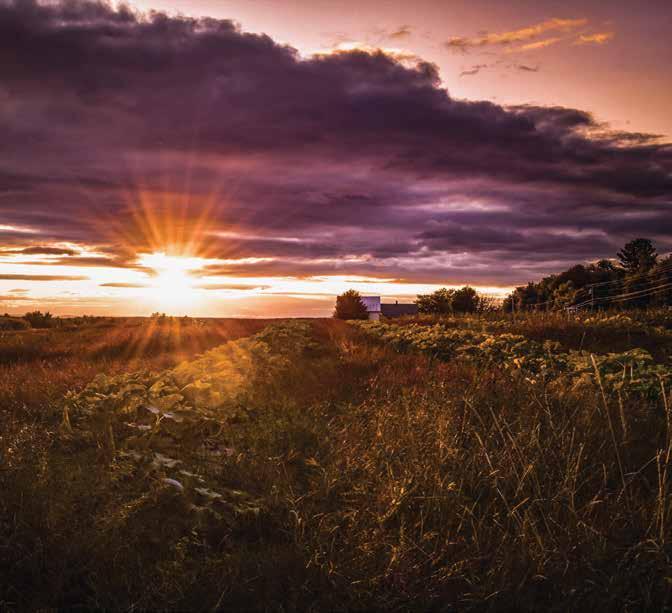
When you dedicate your life and well-being into a farm, you deserve more than just a one-size-fits-all insurance plan to protect it.
At American National, our Special Farm Package 10® or Country Estate policy can provide you with a flexible package that can be tailored to meet your specific needs, with coverage options that include windstorm, fire, mechanical equipment and utility line failures, machinery, livestock and much more. Plus, our coverage options extend beyond farm and ranch needs to life insurance as well.
Having a strong relationship with the New Hampshire Farm Bureau over the years has given American National the understanding of what truly matters most to farmers across the state. Find a local agent at an.insure/nhfb

NH Agricultural Events
NH Agricultural Fairs: September & October nhfairs.com
• Lancaster Fair: August 29th - September 2nd
• Hopkinton State Fair: August 29th - September 2nd
• Hillsborough County Agricultural Fair: September 6th - 8th
• Granite State Fair: September 12-15 & 19-22
• Deerfield Fair: September 26th - 29th
• Sandwich Fair: October 12th -14th
NH 4-H Livestock Show & Auction
September 2, 2024 from 10am-2pm Hopkinton State Fair
Auction sells meat goats, lamb, beef, and swine raised by NH 4-H members
https://extension.unh.edu/new-hampshire-4-h/ new-hampshire-4-h-livestock-show-auction
Associated Women Annual Meeting*
September 10, 2024 at 10:30am Sanborn Mills Farm, Loudon, NH
Anyone is welcome to join for a tour of the historical farm and a farm-fresh meal! Call the NHFB office to register at 603-224-1934.
New Hampshire Day at The Big E September 20, 2024
Springfield, MA
The Big E fair is open September 13-29, 2024 https://www.thebige.com/
Tom Fairchild Friend of 4-H Golf Tournament
September 13, 2024
Pembroke Pines Country Club, Pembroke, NH
Sign up to support 4-H by becoming a sponsor or participating in the tournament!
https://extension.unh.edu/event/2024/09/tomfairchild-friend-4-h-golf-tournament
The “CRAFT of Farming” at the Dartmouth Organic Farm
September 25, 2024 at 4:00pm Hanover, NH
Visit: https://www.nofanh.org/craft for all upcoming NOFA-NH CRAFT workshops
MCFB Barn Dance*
October 11, 2024
Dell Lea, Chichester, NH
Register here: bit.ly/mcfb-barn-dance
Getting to Know Your Land
October 17, 2024 at 6:00pm Society for the Protection of NH Forests, Concord, NH https://extension.unh.edu/event/2024/10/ getting-know-your-land
NHFB Annual Meeting*
November 9, 2024
UNH Durham
*Events marked with an asterisk are hosted by Farm Bureau.
County Annual Meetings
Belknap - Thursday, October 3rd
Carroll - TBD
Cheshire - Monday, October 14th
Coos - Wednesday, September 18th
Grafton - Wednesday, September 25th
Hillsborough - TBD
Merrimack - Friday, October 11th
Rockingham - Tuesday, October 15th
Strafford -Thursday, October 10th
Sullivan - Tuesday, September 17th
See page 22 for more details. Contact your County Secretary to register. Their contact information is in the brochure enclosed with your member cards or by calling the NHFB office at 603-224-1934.
Coos County News by Stan Knecht, CCFB Board Member
Coos County is buzzing.
Coos County Farm Bureau will be buzzing at our annual meeting on September 18, 2024 at the Lancaster Fairgrounds as we welcome Janice Mercieri, owner of White Mountain Apiary, as our guest speaker that night about beekeeping. These winged insects hold a vital place in agriculture and we are looking forward to hearing more about their story from Janice!

County County NEWS

Coos has been busy holding several veterinary sessions so that our 4-H young people can get the paperwork they need in order to attend the Lancaster Fair with their animals. Our great thank you goes out to Dr. Earl Brady who was instrumental in taking time out of his very busy schedule to do this for our kids. Thank you Earl!

As always, we are continuing to look for enthusiastic farmers who want to be part of speaking out for this wonderful industry of ours. Let Mary Tichy or Stan Knecht know if you have an interest in this exciting way to serve.
Memos for Merrimack County Members
by Leandra Pritchard, MCFB Secretary/Treasurer
In July, MCFB held a Farmer Social at Blasty Bough Brewing Company in Epsom. It was a great crowd of farmers, who enjoyed delicious food and local brews! Keep your eyes out for another farmer social later on in the year!
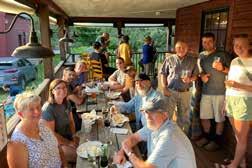
The MCFB 2nd Annual Barn Dance is Friday, October 11th! Please plan to join us at 5:00pm for our Annual Meeting, and then for a wonderful three course meal featuring local foods prepared by our venue, Dell Lea in Chichester. We will also enjoy music and dancing, and an auction with local products. We had an amazing turnout at last year’s event - let’s make this one even better! You don’t have to be a Merrimack County member to join us - truly, anyone is welcome! It’s sure to be a memorable evening. Register online: bit.ly/mcfb-barn-dance
We are also seeking sponsors for the Barn Dance. Sponsors will be able to include promotional materials that will be sent home with each attendee in a goodie bag. This is a great way to get your business advertised amongst our community members! Contact MCFB at merrimackcountyfb@gmail.com or call the NHFB office at 603-224-1934.
Sullivan County Farm Bureau Summer Picnic by Phil Warren, SCFB President
Twenty people gathered on July 12, 2024, at the home of Tom and Suzanna Strempfer for the annual Sullivan County Farm Bureau Summer Picnic. Suzanna is the county secretary. We enjoyed a fabulous potluck dinner featuring local beef cheeseburgers from Jeff and Lisa Holmes’s farm. Cake and ice cream rounded out the meal and made some happy farmers.
President Phil Warren led the business meeting following the pledge of allegiance. We had a secretary’s report from Suzanna and a treasurer’s report from Lisa Holmes. Also discussed were the very successful School to Farm program, Young Farmer Awards, and Profile Awards. Janet Warren read a thank you from a recipient of the Abbie Sargent Scholarship from our area. We set our Annual Meeting for Tuesday, September 17th at the Common Man Restaurant in Claremont, NH. A group will volunteer at the Big E in September and Lisa will organize a presence and quiz at the Cornish Fair. Phil reported on Zoom meetings with AFBF President Zippy Duvall. Festivities wrapped up with a group photo beside a perfectly restored Farmall M tractor by Tom Strempfer. Sorry folks, “it’s not for sale.” A lively cornhole game followed.
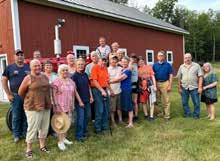
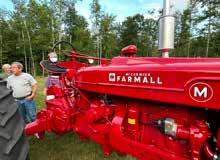
SCFB held their annual Summer Picnic at the Strempfer’s home. The group gathered for a photo (left) and they also admired the fully restored Farmall M tractor by Tom Strempfer (right). Photos courtesy of SCFB.
Sullivan County Farm Day - Visit Local Farms September 28, 2024
Experience a sampling of local farms, products and activities at the Sullivan County Farm Day on September 28th, 10 am -4pm. Participating farms are offering an open house at their locations throughout the county. Meet animals, taste local foods, watch demonstrations, tour various operations and enjoy other farm specific activities. Visit these farms any time from 10 am to 4 pm on September 28th, to learn about local agriculture right in your backyard!
A fun feature of the day will be the “Passport to Sullivan County Farms” event. Visitors can print a passport from the Farm Day website, or collect one at the participating farms. Collect a stamp from each farm you visit on September 28th and be eligible for a variety of prizes. Collect at least five stamps from different farms and submit your passport to a drawing for a grand prize gift basket featuring an assortment of local products and farm experiences. Mark your calendars now and join the fun! Visit the Farm Day website at https://bit.ly/4dMWAtE to see information about participating farms and locations, get your passport and plan your itinerary for the day. Questions? Contact gail.mcwilliam.jellie@unh.edu
Sullivan County Farm Day is a project sponsored jointly by UNH Extension, Sullivan County, the Sullivan County Conservation District, the Claremont Growers Collective and the Sullivan County Farm Bureau.
MCFB Farmer Social was held in July at Blasty Bough Brewing Company in Epsom. Photo courtesy of MCFB.
The Zipline
by Vincent “Zippy” Duvall, President of American Farm Bureau Federation
Farm Bureau’s Policy Development: From the Grassroots Up
August is here, which means for Farm Bureau, our policy development process is heading into full swing. As a grassroots organization, this is the time when our members speak up on challenges they are facing on the farm and within their communities. Those concerns become policy resolutions, which work their way up through the county, state and, ultimately, the national level. Every policy resolution brought to the floor at the delegate session of the American Farm Bureau Convention in January started with one farmer speaking up.
Farm Bureau stands as the Voice of Agriculture, thanks to this active participation by our members. From the farm bill and ag labor reform to infrastructure and rural broadband, your American Farm Bureau team is working diligently on a wide array of issues here in Washington. We rely on you to guide our policy because you know better than anyone what works, and what doesn’t, on your farm. That is also why our nation’s leaders and elected officials know that when Farm Bureau speaks, we are speaking for farmers and ranchers.
Occasionally, there are new or emerging issues that impact farmers and ranchers, but we don’t have specific policy to guide our work. This is when our team in Washington asks for direction directly from our grassroots members via the
Dairy
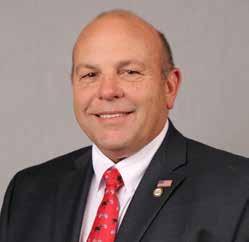
policymaking process. With many critical tax benefits for farm and ranch families set to expire in 2025, we are asking members to ensure we have clear policy in light of the potential for severe economic consequences. We have a second ask of you and it’s important. We need farmers and ranchers across the country to meet with lawmakers this year, so they act swiftly to implement the tax reform farmers and ranchers need in 2025.
Tax reform is crucial for ensuring the economic sustainability of our farms and ranches. Lower tax rates, small business deductions and higher estate tax exemptions help our farm families manage finances more effectively, provide opportunities for investment and even help ease the difficult planning for succession. That is also why we have our eyes fixed on this quickly approaching deadline that will place many of these critical benefits at risk. Without renewal of these benefits, farmers are facing a steep tax increase, and potentially tough decisions going forward.
WELCOME - NEW Members!
(June 15, 2024 - August 15, 2024)

City Name Solicitor
Member Type
Andover Corey Johnson Supporter Mike Bertolone
Barrington Peter Keefe Supporter Dee Treybig
Boscawen Heather Wunschel Supporter
Brentwood Revision Energy Business Supporter Rob Johnson
Canterbury Robbyn Kelly Supporter Mike Bertolone
Canterbury James & Denise Sojka Farmer Mike Bertolone
Grantham Janice Gellis Supporter
Hollis Sandra Haithcock Farmer
Londonderry Edward Dudek Supporter Dee Treybig
New Ipswich Jeffrey Krouk Farmer Mike Bertolone
Newfields Margaret Chadwick Farmer Christie Brown
Ossipee Lindsay Donovan Farmer
Peterborough Bradley & Carolyn Mayes Farmer Mike Bertolone
Raymond Andrew Sims Farmer NHFB
Our farm and ranch families need a permanent tax code that provides stability and recognizes the unique financial challenges farm businesses face as they work to provide a secure food supply for our nation.
At Farm Bureau, the call for tax reform has come in many forms over the years and we are continuing to work with, and on behalf of our members, to get a solution before the 2025 deadline. That is also why addressing the tax concerns through the policy development process is a top priority. We want to hear from our members about how these issues are impacting your farms and ranches directly. This feedback not only helps us work
on your behalf but also gives us farmer and rancher storiespowerful testimonials - we can share to ensure all lawmakers understand the impact of tax reform on farm and ranch families across the country.
This is your Farm Bureau, and these are your policies. Together, we will continue to shape the future of American agriculture and ensure that our farms, ranches and rural communities thrive for generations to come. I am deeply grateful for the hard work and dedication you put into shaping our great organization at the local, state and national levels and am eager to see what comes from this year’s policy development process.
Promotion Organizations Partner with Elle St. Pierre to Bring Dairy Front and Center for
By: Elicia Pinsonault, Farmer Relations Manager, New England Dairy
The 2024 Olympics kicked off in Paris on July 26. Two Northeast dairy promotion organizations collaborated to bring dairy front and center during the event, partnering with Olympian, dairy farmer, and University of New Hampshire alumna Elle (Purrier) St. Pierre to grow trust and sales for dairy.
New England Dairy and American Dairy Association Northeast produced three videos featuring St. Pierre, which were shared throughout the Olympics. The videos focus on her preparing for the 1,500-meter race, incorporating dairy into her diet, refueling with chocolate milk, and feeling proud to raise her son on a dairy farm – just like she and husband were.
Elle grew up on a dairy farm in Vermont and attended University of New Hampshire. Today, she calls Pleasant Valley Farms in Berkshire, Vermont, home, where her husband, Jamie, farms with his family. You can watch each of the videos on New England Dairy’s YouTube, Facebook, Instagram, TikTok at @NewEnglandDairy.
New England Dairy is your local dairy checkoff organization, working on behalf of dairy farmers in five states, including New Hampshire. New England Dairy is the only dairy checkoff organization in New England that belongs to the United Dairy Industry Association, playing a pivotal role in the National Unified Marketing Plan for dairy products.
the 2024 Olympics

Vincent “Zippy” Duvall, a poultry, cattle and hay producer from Greene County, Georgia, is the 12th president of the American Farm Bureau Federation.
Olympian and dairy farmer, Elle St. Pierre, helped bring awareness to the benefits of dairy during the 2024 Olympic events.
Photo courtesy of New England Dairy
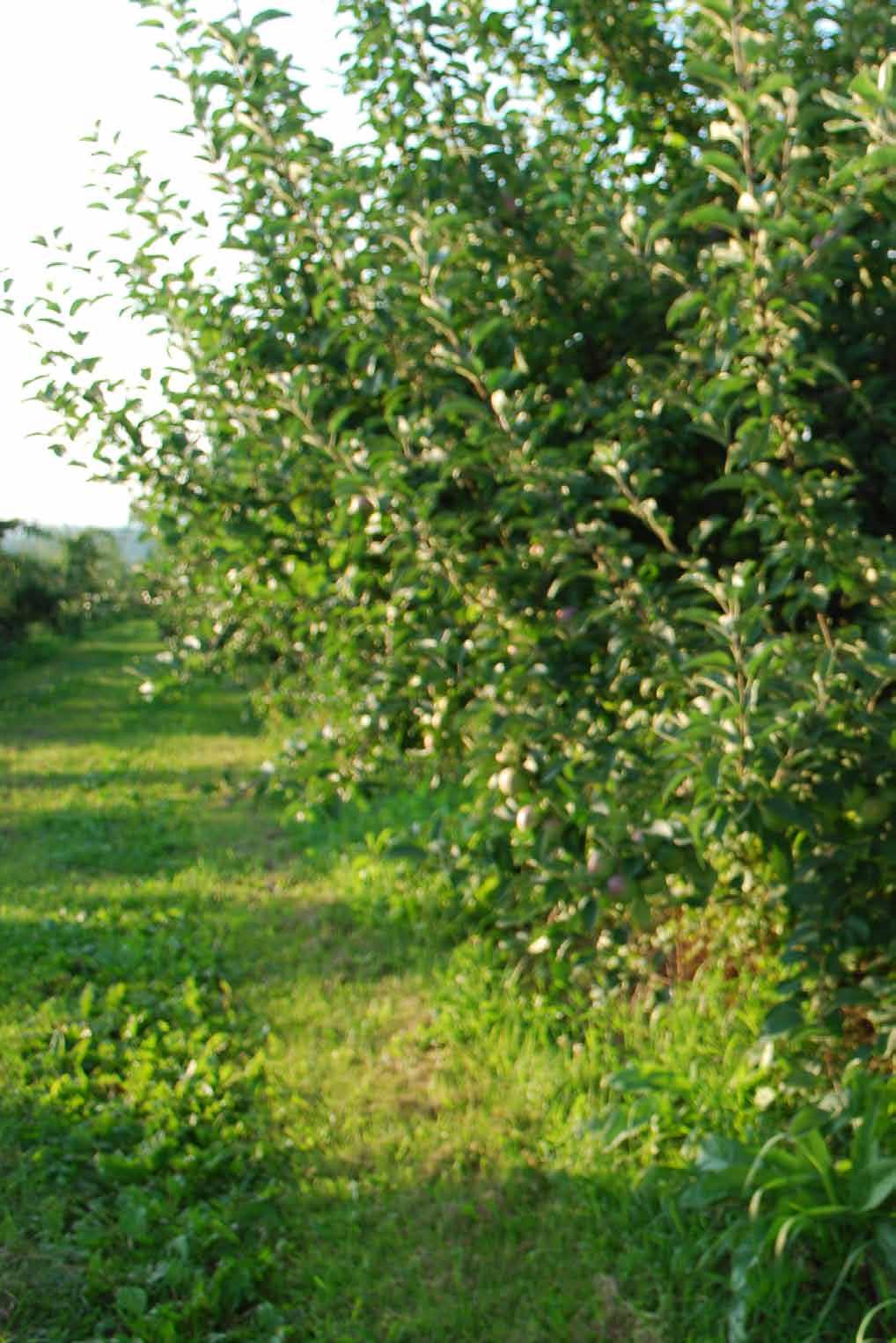
NHFB Meat Producers Directory
Buy Local buy from a NH Farm Bureau Member!
Belknap County
Beans & Greens Farm - Gilford
Andrew Howe - 603-293-2853 beansandgreensfarm@msn.com www.beansandgreensfarm.com
Grass-fed beef, GMO-free pork, chicken, turkey.
Half a Penny Farm - Ctr. Barnstead
Shane & Jenn Forest603-345-5277 or 603-591-2910 www.halfapennyfarm.com
We carry pasture-raised black angus beef. USDA Certified. Cryovac packaging. Individual assorted cuts of beef. Whole, Half and Quarter shares available. Check us out on Facebook and Instagram.
HT Farm LLC - Belmont
Tim Duval - 603-630-5551
Heidi Loring - 603-630-6493 hdloring@hotmail.com
Grass-fed, farm-raised, USDA Angus beef. We sell individual cuts in our farm store, whole and half shares also available.
LorrenJoyce Farm - Barnstead
Amy & Brian Matarozzo - 603-235-5780 lorrenjoycefarm.com
Naturally raised beef. USDA approved. All cryovac packaging.
Shepherd’s Hut Market - Gilford
Jeff & Joyce Keyser - 603-393-4696 or jekeyser1958@gmail.com
Certified USDA freezer lamb. Various cuts fresh frozen and vacuum sealed.
Velvet Flats - Gilmanton IW
Sabrina Hufschmid - 603-491-1687 vrflats.reddeer@gmail.com Farm-raised venison.
Carroll County
Mountain Breeze Farm - Ctr. Sandwich
Ryan Milbury - 603-677-2605
We offer our own farm-raised beef and pork by the piece, half, or whole. Wholes and halves choose their own cuts. All processed in a USDA facility. Pick up and hours by appointment at this time.
Remick Country Doctor Museum & Farm - Tamworth
Sheena Harte - 603-323-7591 info@remickmuseum.org
Farm-raised ground beef, breakfast and sweet Italian sausage.
Top of the Hill Farm - Wolfeboro
Alan Fredrickson - 603-569-3137
topofthehillfarm@metrocast.net
Beef - pasture exposed and all natural by the piece, 1/4, 1/2 or whole.
Cheshire County
Archway Farm - Keene
Mark Florenz - 603-352-3198
mark.florenz@gmail.com
http://www.archway.farm/
Pasture-raised heritage pork; whole, half, or individual cuts. See our website for details.
Earth Haven Farm - Marlborough
Mary & George Iselin - 603-876-4036
www.earthhavenfarm.com
Grass-fed low-fat Beefalo. USDA labeled pkg. hamburger, roasts, steaks at our farm store or 1/4, 1/2, or whole for cuts to customer specifications.
East Hill Farm - Troy
Dave Adams - 603-242-6495
info@east-hill-farm.com
Whole, half, or individual cuts available of pork, beef, lamb and goat.
JHF Stable & Livestock - Alstead
John & Hazell Fuller - 603-835-6509
USDA vacuum-packed Beefalo and grass fed on the farm in Alstead.
Manning Hill Farm - Winchester
Sarah Costa - 603-239-4397
Grass-fed heritage beef, pastureraised heritage pork, by the individual cut or in bulk-half and whole sides Pasturerasied whole roasting chickens.
Up Top Farm - Winchester
Kathy Beaman - 603-355-0818
kathy@kbsunspaces.com
Black Angus Beef - hormone and antibiotic free, pasture raised. Grass fed, corn finished, premium freezer beef. Whole or half. Processed in a USDA facility to your specifications.
Coos County
CJEJ Farm Meat House - Columbia
Chris & Joyce Brady - 603-922-3305
USDA inspected cuts of beef, pork, lamb, and chevon. Chicken (whole and parts) and Thanksgiving turkeys also available. All grown on our farm with our own homemade grain. Store open year-round.
Northwinds Farm – N. Stratford
Scott & Heidi Mason - 603-922-8377 northwindsfarm1@yahoo.com
USDA inspected, vacuum-packed beef, lamb and veal. Sold by the side or cut. Also available through the Barn Store of New England in Salisbury, NH.
Serenity Farm - Stratford
Scott Pitas - 603-922-2083
Serenityfarmstratford@gmail.com
Grass fed, pasture raised, USDA inspected beef. Pasture raised chicken and turkey. Farm raised, USDA inspected pork.
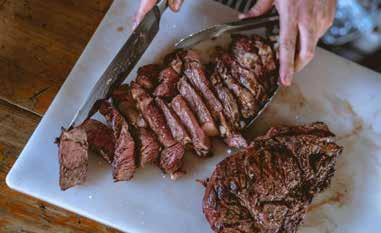
Grafton County
Bonnie Brae Farms - Plymouth
Henry Ahern - 603-536-3880 bonniebraefarms.com
Farm-raised Red Deer venison, velvet antler, hard antler and hides. Also breeding stock. The deer are primarily grass and hay fed. USDA inspected.
Maple Ridge Farm – Wentworth Lance Rand - 603-726-1984
Farm Raised Red Deer / Elk Cross Meat for Sale $6 a lb. - hanging weight.
Rocky Road Tunis Farm - Bath Deb Robie - 603-747-3869 wehunt4@myfairpoint.net Local Lamb.
Hillsborough County
Barrett Hill Farm - Mason The LeClairs - 603-878-4022 barretthill@myfairpoint.net or visit our website: barrethillfarm.com Beef, pork, and lamb.
Best Life Farm - New Ipswich
Chris Bille - 603-546-8786 cbille@bestlifefarmnh.com or visit our website bestlifefarmnh.com
Forest pastured Berkshire pigs, grassfed Suffolk and Dorset lambs, and fresh eggs. Pigs and lambs are sold by the half or whole share. USDA inspected frozen retail cuts are available yearround.
Broken Bow Farm - Hillsborough Joy LePage - 603-702-2135 trilepage@gmail.com
We are a small, family farm, specializing in producing the best pasture raised Cornish Cross meat birds, delicious eggs from our spoiled hens, and artisan sourdough breads. Our Nigerian Dwarf goats provide hugs and laughs with expected milk and kids in 2025.
Buckledown Farm - Francestown Jack & Chris Hopfenspirger603-546-5835
We sell grass fed beef by the whole, half or quarter. 30 pound variety boxes are available on a limited basis.
Gus’s Farm - Mason Gus Franchi - 978-400-8521 gusfarmnh@gmail.com www.gusfarm.com
Pork, beef, chicken, and turkeys.
Leel Farm – New Ipswich
Butch Leel - 603-562-0860 bleel@comcast.net
Pasture-raised beef.
Old Homestead Farm - New Ipswich Ben & Chelsea Hatcher -978-407-6280 oldhomesteadfarmnh@gmail.com
Pasture-raised USDA beef & farm fresh eggs. Greenhouse vegetables & meat birds. We also offer horse boarding. Find us on Facebook & Instagram.
Paradise Farm - Lyndeborough
Wayne & Adrienne Colsia - 603-345-0860
wayne@paradisefarmnh.com www.paradisefarmnh.com
100% grass-fed beef, grass-fed lamb, pasture-raised pork, free-range eggs, all natural goat milk.
Rocky Meadow Farm - Francestown Wayne LeClair - 603-731-2342 wayne@rockymeadowfarm.com www.rockymeadowfarm.com
Grassfed Beef since 1993.
Temple Mountain Beef - Temple
Mark Salisbury - 603-878-4290
Beef by the side – cut and packaged to order.
Merrimack County
Bokaja - Webster
603-731-5381 or 603-648-2520
Local turkeys - various sizes.
Huntoon Farm - Danbury
Phil or Donna Sprague - 603-768-5579
46 Huntoon Rd, Danbury
Email: huntoonfarm@myfairpoint.net http://huntoonfarm.com
Beef, pork, chicken, Thanksgiving turkeys
Little Red Hen - Pittsfield
603-568-5540
lrhfarms2018@gmail.com
Littleredhenfarm.net
Forest-fed pork and pasture-raised chicken.
Miles Smith Farm - Loudon
Bruce Dawson or Carole Soule 603-783-5159
https://milessmithfarm.com/ Locally raised beef in retail packages with USDA labels.
Schroeder Farm - South Newbury
Bill Schroeder - 603-938-5911
bangus@tds.net
Black Angus beef by the side or individual cuts. USDA inspected, all grass-fed. Roaster Chickens 10-12 pounds, all natural grain fed.
Tilton Hill Goat Farm - Danbury Noreen Rollins - 603-738-5133
nikkinomar@yahoo.com
USDA goat meat, farm fresh eggs, alpaca fiber and cashmere fiber.
Yankee Farmers’ Market - Warner
Brian & Keira Farmer - 603-456-2833
yankeefarmersmarket@gmail.com
https://yankeefarmersmarket.com/ Farm and store are open year-round and offer all natural, USDA buffalo (bison), grass fed beef, venison, elk, lamb, chicken, turkey and pastured pork. Wide variety of individual cuts, CSA shares, 1/2’s & 1/4’s, hides, skulls & breeding stock. Farm tours are also available. Wholesale available. We ship nationwide.
September/October 2024
Rockingham County
Brookvale Mercantile - Nottingham
Brenda Barthelemy - 603-693-7291 mercantile@brookvalepinesfarm.com www.brookvalepinesfarm.com/
Selling grass fed beef, non-GMO chicken, non-GMO pork, other local meats, eggs, raw milk, and a variety of products sourced locally.
Gravel Pit Farm - Nottingham
Samantha & Allan Trant603-715-6283
gravelpitfarmnh@gmail.com
We raise and sell pasture-raised pork, beef, and poultry.
J&F Farms Inc. - Derry
Phil Ferdinando - 603-437-0535 farmstand@JFfarms.com
All cuts of frozen beef.
Mandico Cattle Co. - Nottingham Conrad & Kathy Mandsager603-770-1948 cmandsager@gmail.com
Farm-raised, grass-fed Highland beef.
Strafford County
Coppal House Farm - Lee
John & Carol Hutton - 603-659-3572 coppalhouse@comcast.net
USDA certified pasture-raised lamb and pork products. All cuts flash frozen and vacuum-sealed. Various cuts available at the farm stand, special requests are filled when available.
Diamond B Farm - New Durham Meghan Bickford - 603-762-0190 diamondbfarm14@gmail.com www.bickfordsdiamondbfarm.com
All natural, pasture-raised beef, pork, chicken, turkey and eggs.
His Harvest Farm - Madbury Bruce Smith - 603-834-5012 farmer.hisharvestfarm@gmail.com hisharvestfarm.com
Pasture-raised chickens and eggs
Pinewoods Yankee Farm - Lee
Tina Fottler-Sawtelle & Erick Sawtelle603-659-8106
esawtelles@aol.com
Grass-fed beef. Belted Galloway and Angus crosses. Individual retail cuts and custom cut sides. Find us on Local Harvest and Facebook.
Sullivan County
Beaver Pond Farm - Newport Bennie Nelson - 603-542-7339 beaverpondfarm1780@gmail.com tinyurl.com/bpondfarm
Raising beef and lamb. For sale at our retail store on the John Stark Hwy between Newport & Claremont. Open year-round.
Eccardt Farm Inc. - Washington George, Sandy & Ryan Eccard603-495-3830
Eccardtfarm@gsinet.net
Our home-grown grass-fed, USDA certified beef. We have an array of steak cuts and roasts all vacuumpacked for longer freshness. Lamb & pork when available.
Far View Farm - Langdon
Marilyn Stuller - 603-313-7115
m.stuller@yahoo.com
Lamb - naturally raised on pasture. Icelandic lamb is naturally lean with a mild flavor.
Hill Place Farm - Acworth
Hay Directory Ag Products & Services Producers of Other Edibles
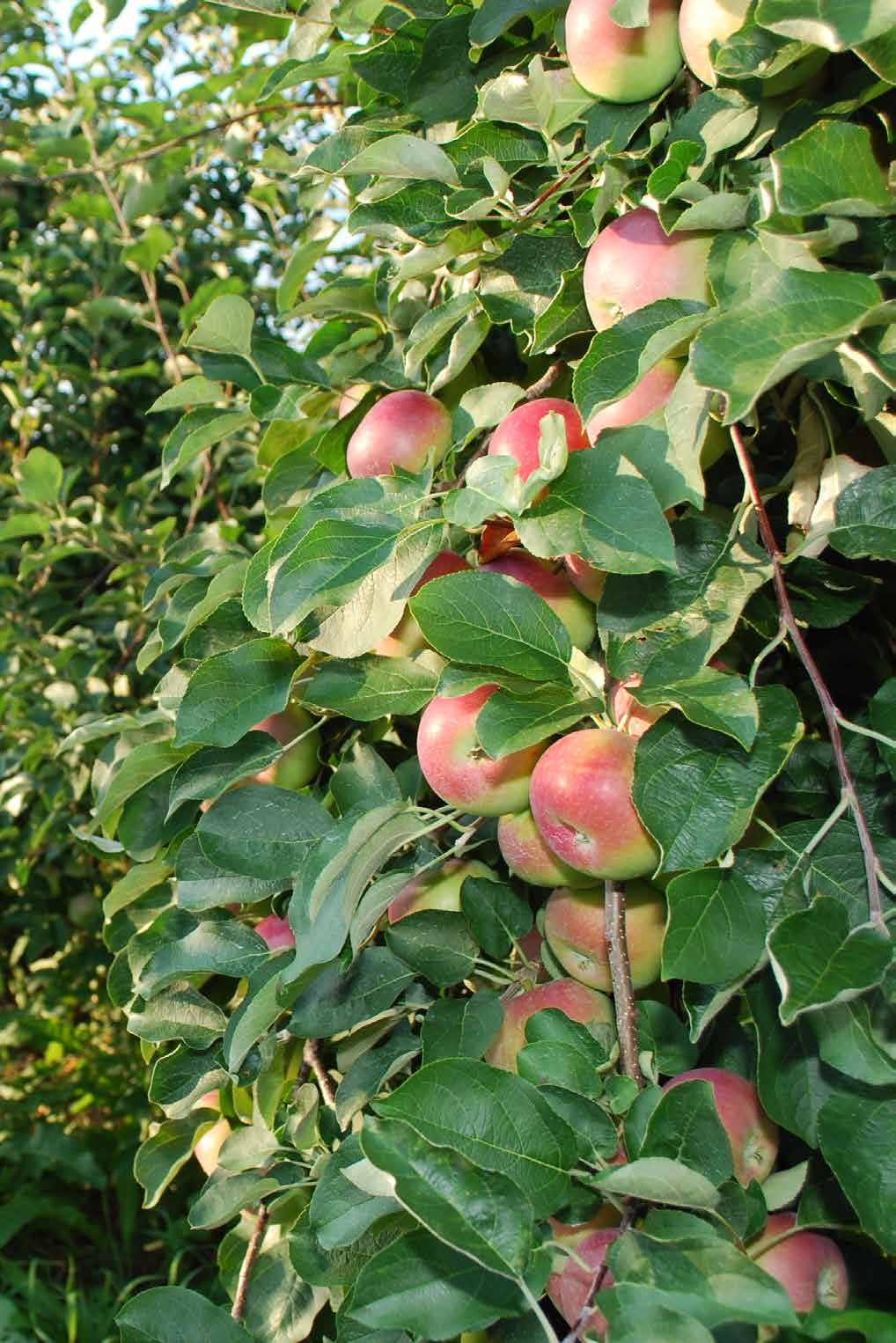
David Clark - 603-835-9086 www. hillplacenh.com USDA Inspected beef and pork.
Cheshire County
Karl Eckilson - Dublin
603-933-9512
Mulch hay, small square bales. Pickup or Local Delivery Available Coos County
Northwinds Farm - N Stratford
Scott and Heidi Mason603-631-5953
1st Crop, Dry Round. 2nd Crop, Dry Round. Pick-up or Local Delivery Available
Thibeault Farm - Pittsburg
Richard Thibeault - 603-246-8227
1st Crop, Dry Round. 2nd Crop, Dry Round. Pick-up or Local Delivery Available
Hillsborough County
Connolly Brothers Dairy Farm LLC
- Temple Chris Connolly - 603-924-5002
connollybrothersdairyfarm@yahoo.com
1st Crop, Square. Pick-up or Local Delivery Available
Hollis Ranch - Hollis
603-465-2672
1st Cut, Timothy mix horse quality.
Old Homestead Farm - New Ipswich
Ben & Chelsea Hatcher - 978-407-6280
oldhomesteadfarmnh@gmail.com
1st Crop, Square. 2nd Crop, Square. 1st Crop, Dry Round. 2nd Crop, Dry Round. Balage, Round. Local Delivery Available
Merrimack County
Aznive Farm - Loudon
Charlie & Pearl Aznive - 603-435-7509
1st Crop, Square. 2nd Crop, Square. 1st Crop, Dry Round. 2nd Crop, Dry Round. Pick-up Only
Hersey Farm - Andover
Jerry Hersey - 603-848-0109
Dry stock & mulch hay, 1st crop. PickUp Only
Rockingham County
Gov Dale Farm - N Hampton
Hank - 603-964-0674
hank@govdalefarm.com
1st crop, square. Local delivery available
Weeks Point Farm - Greenland
John Weeks - 603-431-1823
robinweeks@comcast.net
1st crop, square, 2nd crop, square. Pick-up or local delivery available. In the field, you pick up
Sullivan County
Eccardt Farm - Washington
603-495-3830
1st cut $8 square bales. In the field, you pick up
Peachblow Farm - Charlestown
Robert Frizzell - 603-398-8090 or 603435-7509
1st Crop, Square. Mulch hay, Seedless straw, pick-up only.
Belknap County
Silent Night Farm - Meredith Kendall Stapley - 603-279-8838 silentnightfarmNH@gmail.com
Rough cut field mowing (bush hogging) available within 20 mile +/- radius of Meredith Center NH. $125/hour, four hour minimum (2 hr minimum within Chemung conservation district in Meredith). Light tractor work also available.
Grafton County
Cardigan Veterinary Clinic - Canaan 603-632-7500 https://www.cardiganvet.com/ Now accepting new farm and equine clients in New Hampshire & Vermont within a 40 mile radius of Canaan, New Hampshire. Also specializing in Equine Dentistry with over 25 years of experience. Able to travel further for larger barns.
Resource Management, Inc (RMI)Holderness
Charley Hanson - 603-536-8900 rmi@rmirecycles.com rmirecycles.com
Improve crop yields with wood ash, a natural potassium source that also increases soil pH. OMRI listed. Order biosolids as a balanced and slowrelease nitrogen source. Use paper fiber for animal bedding and organic matter on fields. Call for a delivery quote for products to improve your soil health and crop performance.
Merrimack County
Ancora Imparo Equine CenterBoscawen
Stacia Langille - 603-731-3144 stacialangille@gmail.com
Multidisciplinary private horse boarding facility with indoor, outdoor, round pen, trails. Full service farrier, serving equines in central NH.
B.R. Davis Land Services - Canterbury
Ben Davis - 603-998-3642 brdavisland@gmail.com
B.R. Davis Land services provides forestry mowing, vegetation control services and general excavation, plus produces high quality hay to central NH.
Hastings Welding and Fabrication, LLC - Pembroke
Avery Hastings 603-239-2485 aehastings1@gmail.com
Call or text me with your welding needs. You can bring it to me or I can come to you. You can check out my business page on Facebook for many of my past projects (Hastings Welding and Fabrication) .
Pritchard Farms - Pembroke
Jay Pritchard - 603-828-1307 pritchardfarms13@gmail.com
We repair: Farm equipment, implements, tractors, construction equipment as well as perform welding & fabrication jobs. Reasonable hourly rates at our shop in Pembroke.
Belknap County
Kenyon Acres - Northfield kenyonacres@gmail.com https://www.kenyonacres.com/ Local honey
Main Street Maple & Honey FarmBelmont
Kevin Day kevinday7171@gmail.com www.mainstreetmapleandhoney.com
Honey and maple syrup is what we do. We also offer services such as swarm catches, hive removals, cutouts from homes or buildings and offer many other products based on honey and maple syrup. We have a Facebook presence and an online store.
Grafton County
North Facing Sugarworks - Wentworth Ray Welch Instagram.com/northfacingsugarworks/ rwelch.jkloggingllc@gmail.com
Local maple syrup
Hillsborough County
4 Peaks Farm - Lyndeborough Michael Crombie mcrombie@tds.net
Local honey
Peter and His Bees, LLC - Amherst Peter de Bruyn Kops Facebook.com/NHlocalhoney/ dbk@acugen.com
Local honey. All our hives are in NH and we only sell honey we produce.
Merrimack County
Lamb’s Maple Syrup - Canterbury David & Janet Lamb 603-783-9912
https://www.davidlambfurniture.com/ maple-syrup
NH Maple Syrup is made by concentrating the sap of the sugar maple tree. 100% pure, nothing added.
Rockingham County
Dill Family Farm - Deerfield Alden Dill
Facebook.com/DillFamilyFarm alden_dill@hotmail.com
NH maple syrup
Sullivan County
Clark’s Sugar House - Langdon
David Clark
Facebook.com/clarkssugarhouse/ Award winning wood fired pure maple syrup been being produced since 1893.
Cutting Farm - Springfield
Keith & Susan Cutting cuttingfarm@myfairpoint.net
NH maple syrup

Belknap County
Green Acres Berries
New Hampton
203-533-9090
greenacresberries@gmail.com
Family owned u-pick blueberry farm with sweeping views of the mountains. Six different varieties of no spray highbush blueberries and raspberries available for PYO or pre-picked for purchase. In addition we also have our own maple syrup, honey and jam.
Keenan Family Farm
79 Upper Bay Rd., Sanbornton 603-706-2211
keenanfamfarm@gmail.com
Carroll County
Bly Farm
620 Center St. Route 28, Wolfeboro 603-569-1411
blyfarm@comcast.net
Visit the farmstand for fresh tomatoes, cucumbers, beans, zucchini, summer squash, lettuce, beets, peppers, carrots, eggplant, swisschard, onions, winter squash, pumpkins, potatoes, stawberries, and blueberries.
Hillsborough County
Brookdale Fruit Farm Inc.
38 Broad Street, Hollis 603-465-2240
brookdalefruitfarm@yahoo.com
brookdalefruitfarm.com
A wide variety of fruits and vegetables including but not limited to strawberries, cherries, peaches and apples. Vegetables include cucumbers, squashes, sweet corn, tomatoes, pumpkins and other specialty vegetables. Produce can be purchased at our farm stand, various Hannaford and Shaws supermarkets throughout NH, and other farm stands
NHFB Fruit & Vegetable Producers Buy Local buy from a NH Farm Bureau Member!
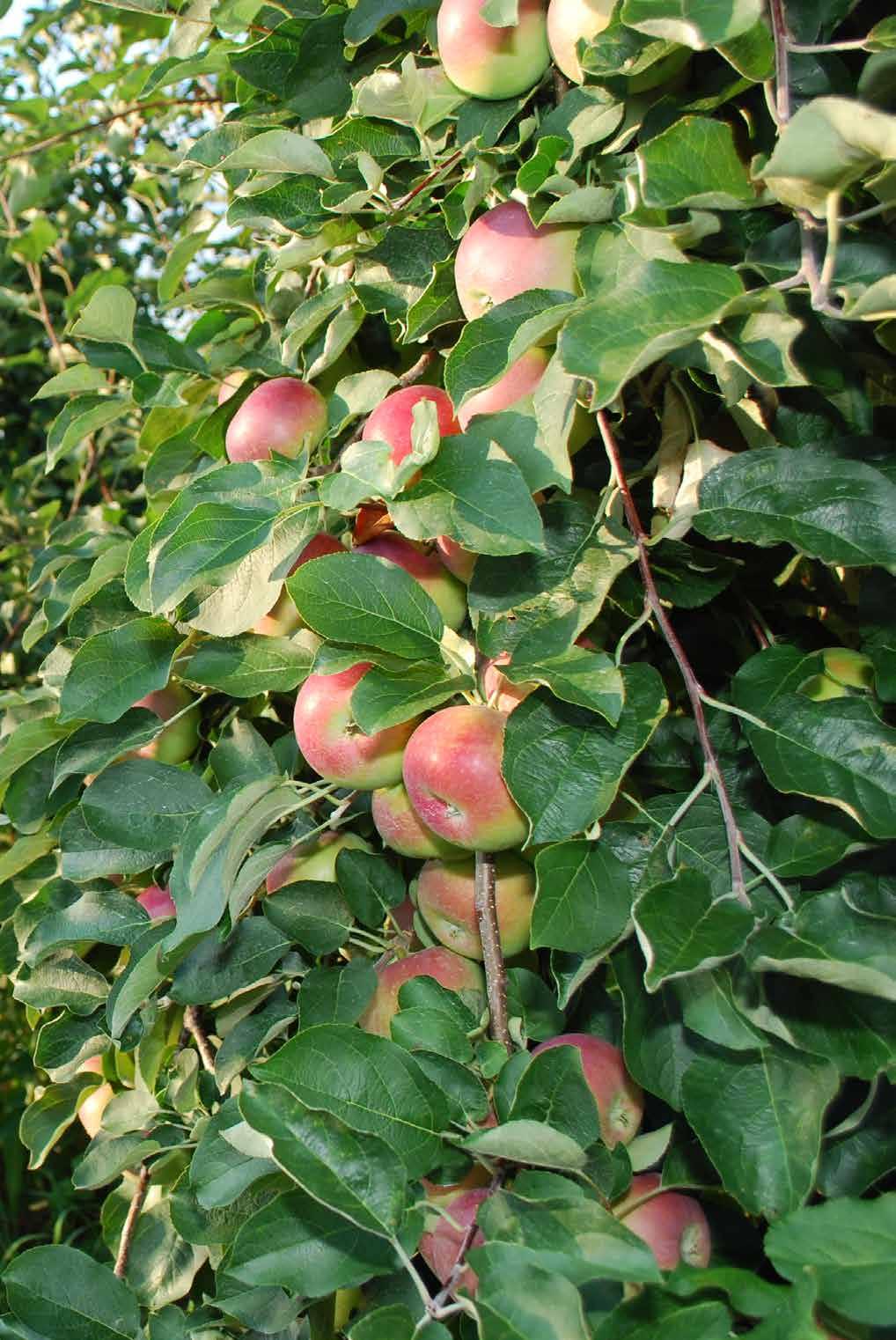
Currier Orchards
9 Peaslee Rd, Merrimack 603-881-8864
currierorchards@yahoo.com
Visit our farm stand. U-pick apples and pumpkins PLUS apple cider, jams, jellies, vegetables, pickles, apple pies, pumpkin bread and peaches.
Oasis Springs Farm
79 Groton Road, Nashua 603-930-1294
sarah@oasisspringsfarm.com
Oasisspringsfarm.com
Year round Hydroponic Grown Lettuces, Kale, Chard, Herbs and Microgreens. CSA pick ups in Southern, NH
Merrimack County
Little Red Hen
85 Norris Rd., Pittsfield
603-568-5540
We grow and sell sweet corn, tomatoes, cucumbers, squaash, lettuce, beans, greens, pumpkins, bedding plants, and more! Open from April to December.
Spring Ledge Farm
37 Main Street, New London 603-526-6253
greg@springledgefarm.com Springledgefarm.com
Two Sisters’ Garlic of Clough Tavern Farm 23 Clough Tavern Rd, Canterbury 603-783-4287 / 731-5574
twosistersgarlic@yahoo.com
https://www.cloughtavernfarm.com/ Culinary selection of dried garlic and garlic, herbs, and spices blends. PYO Raspberry patch.
Windswept Maples
845 Loudon Ridge Rd, Loudon 603-267-8492
wmfmoore1@comcast.net windsweptmaples.com
Year-round maple syrup & maple products. Sweet corn, tomatoes, pumpkins, green beans, potatoes, cucumbers, ornamentals, corn stocks, haybales, mini pumpkins all available seasonally Visit our website for farm stand hours and dates of opperation.
Rockingham County
Heron Pond Farm
29 Main Ave, South Hampton 603-394-0129
andre@heronpondfarm.com
A four season farm that grows over 250 varieties of vegetables, fruits, herbs, and flowers. Farming yearround allows us to grow and maintain an incredibly skilled and experienced staff whose passion brings higher yields, quality and flavor to our food.
J&F Farms
124 Chester Road, Derry 603-437-0535
jandffarms@gmail.com jandffarms.net
Visit our farm stand for a wide variety of fruits and veggies!
Oliver Merrill & Sons
569 Mammoth Rd, Londonderry 603-622-6636
Merrillfarmsnh@gmail.com Facebook.com/olivermerrillandsons
Visit us at our farm stand and find our eggs, apples, peaches, pears and vegetables at various gocery stores in Manchester, Derry and Londonderry.
Sunnycrest
59 High Range Rd, Londonderry 603-432-9652
sunnycrestfarmnh.com
Family owned and operated apple farm with PYO apples, strawberries, blueberries and cherries, plus a market with fresh local vegetable, fruits, honey, syrup and milk. Bakery offers apple donuts and home-made breads.
Strafford County
Butternut Farm
195 Meaderboro Rd, Farmington 603-335-4705
butternutfarm.net
A family friendly, family run, pick-yourown fruit farm.
Knife & Plow
Strafford, NH farmer.johnherrmann@gmail.com
https://www.knifeandplow.com
Vegetable producer and processor. Certified organic produce. Prepared meals. Fresh and frozen produce. Pickles, pesto and more! Retail and wholesale markets and you can find us at farmers markets. Visit our website for more details.
Sullivan County
Bascom Road Blueberry Farm 371 Bascom Rd, Newport 603-359-7703
kristy@bascomroadblueberryfarm.com www.bascomroadblueberryfarm.com
Pick-your-own blueberries and farm store with our own produce, honey and local meats and syrups.
Beaver Pond Farm
50 McDonough Road, Newport 603-543-1107
beaverpondfarm1780@gmail.com tinyturl.com/bpondfarm
Retail store on John Stark Highway between Newport & Claremont. Open year round. Our own beef, lamb, vegetables, berries, apples, cider, Christmas trees, pumpkins and wreaths. Also, the best homemade pie, jam and maple syrup. PYO raspberries at the farm in July. Local made products and wholesale to Shaws, Grazi’s in Newport and Jiffy Mart in Claremont.
Cutting Farm
2666 Sanborn Hill Rd, W. Springfield cuttingfarm.com
A wide variety of fruits, veggies and much more!
Pumpkin Chocolate Chip Muffins

Instructions:
1. Preheat oven to 400°. Place paper liners in the muffin tins.
2. In a large bowl, beat the eggs, sugar, pumpkin and oil until smooth.
3. Combine the flour, baking soda, baking powder, pumpkin pie spice and salt in medium bowl.
4. Add the dry ingredients to the wet ingredients and mix well.
5. Fold in chocolate chips.
6. Fill muffin liners three-quarters to almost all the way full.
7. Bake approx. 15 minutes or until a toothpick inserted near the center comes out clean. Do not overbake. Cool in pan 10 minutes before removing to a wire rack.
Makes approx. 2 dozen muffins or 6 dozen mini muffins. Store in airtight container or freeze some for later!

YOUNG FARMER COMMITTEE
YOUNG FARMER COMMITTEE
Learning, Leading & Networking with the Ag Industry
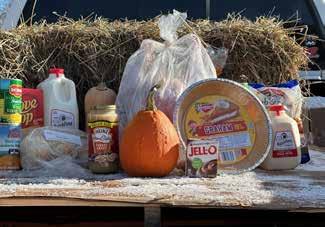
Young Farmers are collecting donations for their annual Thanksgiving baskets. Please consider bringing a donation to the cause to your County
or to the NHFB office in Concord.
WE ARE HIRING
PART-TIME SECRETARY
$15/HOUR CONTRACTOR
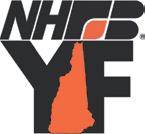
Email assistant@nhfarmbureau.org or call the NHFB Office at 603.224.1934 for more details
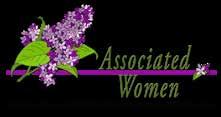
Young Farmers are planning a busy fall. They will be collecting non-perishable items for their annual Thanksgiving baskets at the County Annual Meetings.
If you would like to donate, please bring your donations with you to your respective meetings or to the NHFB office in Concord. Young Farmers are also planning to attend the Growers Dinner at the Inn at East Hill Farm in November. Each year, they are invited to hold a silent auction at the event to benefit their group. They plan to gather giftbaskets as auction items. If you would like to donate to their auction, please reach out the NHFB office at 603-224-1934 or assistant@nhfarmbureau.org
Young Farmers are planning some industry tours this fall. Keep an eye in the NHFB e-newsletter and on our Facebook page for details!
Young Farmer Awards will be presented at the NHFB Annual Meeting on Saturday, November 9th. Achievement Award, Excellence in Agriculture Award, and Animal Husbandry Award winners will be honored at the event for all to enjoy their accomplishments within the agricultural industry. Young Farmers continue to seek a part-time Secretary. Hours are 10-15 hours per month at $15/hour. Please contact the NHFB office if you are interested.
Associated Women Adventures
by Jozi Best, Associated Women President
Associated Women Annual Meeting Announcement:
Associated Women will be having their Annual Meeting on Tuesday, September 10th at Sanborn Mills Farm in Loudon, NH. The event will start with a guided tour of the historical working farm at 10:30am. Attendees will then be treated to a farm to table lunch created by the on-site chefs. Cost is $25 per person for the local meal. Anyone is welcome and encouraged to attend! New faces are more than welcome! Please call the NHFB office at 603-224-1934 to register. Learn more about Sanborn Mills Farm on their website at: https://www.sanbornmills.org/
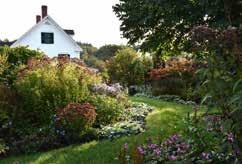
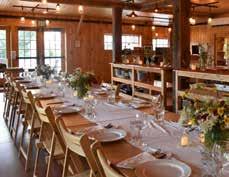
Associated Women had a booth at the Clough Tavern Farm Raspberry & Wool Day in Canterbury, NH in July. We had a table featuring NH Farm Bureau and AW activities, and had meaningful discussions about Farm Bureau and local food with event goers.
AW has many projects that they continue to plan including:
• An updated version of the century farms book (see details on back page)
• How to help update Farm Bureau policies for effective agricultural practices
• How to educate more authorities about truly humane animal care and use, and help protect farmers from groups who are trying to shut them down Any Farm Bureau woman is welcome to join Associated Women! Please contact Jozi Best at jozibest@aol.com or 603-304-9152 or the NHFB office at 603-224-1934 with any questions.
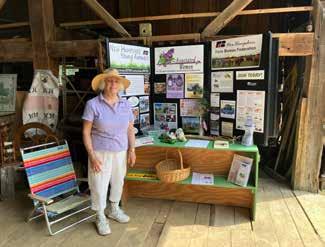
AW represented NHFB at the Clough Tavern Farm Raspberry & Wool Festival in July. Photo by Leandra Pritchard
Annual Meeting



Andrew Jellie
Blackmount Farm
Casella Organics
Colebrook Feeds Farm & Garden Supply LLC
Darrell A. Louis Insurance & Financial Services
LAVender Veterinary Services East Hill Farm
J & F Farms
Jeremy Hiltz Excavating, Inc.
NHFB Member Offers Spotlight


Carotid Artery Disease: an ultrasound is performed to screen the carotid arteries (a pair of blood vessels in the neck that deliver blood to your brain) for buildup of fatty plaque. This buildup, called atherosclerosis, is one of the leading causes of stroke.
Atrial Fibrillation (AFib): a 6-lead electrocardiogram (EKG) is performed by placing sensors on the arms and legs to screen for Atrial Fibrillation. AFib can lead to blood clots, stroke, and heart failure, and other heart-related complications.1
Abdominal Aortic Aneurysm (AAA): an ultrasound is performed to screen the abdominal aorta for the presence of an enlargement or aneurysm. AAA can lead to a ruptured aortic artery, which is a life-threatening medical emergency.
Peripheral Arterial Disease (PAD): an Ankle-Brachial Index (ABI) test is performed using blood pressure cuffs on the arms and legs. It is important to screen for PAD because it increases the risk of coronary artery disease, heart attack, or stroke.2
American Heart Association https://www.heart.org/en/health-topics/atrial-fibrillation American Heart Association https://www.heart.org/en/health-topics/peripheral-artery-disease/about-peripheralartery-disease-pad




Longview Forest Products LLC
Michael Sharp Enterprises LLC
Mike Bertolone Insurance
MJM Associates Inc
Monadnock Food Co-op
Monroe Tractor
MontShire Packing
Northern Tire of Colebrook, Inc.
Poulsen Lumber Co., Inc.
ReVision Energy Inc.
Summit Eggs & Produce
Windy Ridge Orchard LLC
NOW LEASING Office Space

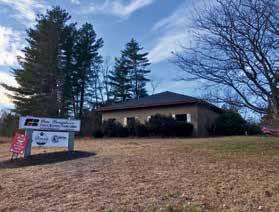
LEGISLATIVE CORNER LEGISLATIVE CORNER
by Robert Johnson, NHFB Policy Director/Acting Adminstrator
LEGISLATIVE CORNER (From front, continues on page 12)
HB 1018-FN, (New Title) relative to on-premise and off-premise liquor licenses and relative to land in current use.
Includes language adding the sentence in bold italics below to the “recreational adjustment” section of the Current Use law as follows:
RSA 79-A:4, II. The board shall reduce by 20 percent the current use value of land which is open 12 months a year to public recreational use, without entrance fee, and which also qualifies for current use assessment under an open space category. There shall be no prohibition of skiing, snowshoeing, fishing, hunting, hiking or nature observation on such open space land, unless these activities would be detrimental to a specific agricultural or forest crop or activity. An owner of open space land may post “no trespass except for skiing, snowshoeing, fishing, hunting, hiking, or nature observation” signs that prohibit or restrict the access to or use of such open space land for any other purpose. The owner of land who opens his or her land to public recreational use as provided in this paragraph shall not be liable for personal injury or property damage to any person, and shall be subject to the same duty of care as provided in RSA 212:34.
This language was sought to provide New Hampshire law enforcement authority to interdict those crossing the state’s northern border illegally. It was introduced as SB 504-FN, relative to land in current use. Land enrolled in the Current Use program claiming the recreational adjustment can already be posted in such a manner – the new language simply states what can already be done. Also adds corresponding language to the Criminal Trespass statute, RSA 635:2.
Effective: 1/1/25 (Current Use & Criminal Trespass language), Chapter Law 321.
HB 1121, relative to creating certain wetlands permit exemptions after a natural disaster or flooding event.
Adds the following subparagraph clarifying statute governing excavating and dredging permit exemptions in wetlands:
RSA 482-A:3, IV (d) Removal of woody debris and blockages after a natural disaster or flooding event from the channels of watercourses, or from culverts or bridges by the owners of said structure, by the property owner, provided mechanized equipment does not enter the watercourse, is allowed without a permit provided sediment disturbance is minimized and the work results in no new permanent impacts to the bed of the watercourse.
Effective: 9/17/24, Chapter Law 219.
HB 1140, relative to requirements for homeowner installations of septic systems.
Enables a homeowner to install a new or replacement waste disposal system in their own domicile without a permit (RSA 485A:36, II).
Effective: 9/1/24, Chapter Law 112.
HB 1302, relative to elected conservation commissions in towns.
Provides municipalities the option to elect conservation commission members (RSA 36-A). (Current law requires conservation commission members be appointed by the mayor in cities and by the selectboard in towns.)
Effective: 7/19/24, Chapter Law 22.
HB 1358, (Third New Title) relative to tenant and contract manufacturers of beer, wine, and liquor and establishing a committee to study the acquisition of land by China. The duties of the committee, made up of four members of the NH House and three members of the NH Senate, are specifically to study the following:
(a) Acquisition of land around military bases.
(b) Acquisition of land around infrastructure.
(c) Acquisition of land around agriculture.
(d) Consideration of the impact of federal law on state legislation and whether there is a preemption issue.
The committee is required to report its findings and any recommendations for proposed legislation no later than November 1st See also HB 1183-FN & SB 366-FN.
Effective: 8/2/24 (study committee), Chapter Law 338. Support
HB 1359, relative to appeals of certain zoning decisions by abutters.
Defines the term “directly across the street or stream” in the definition of “abutter” and replaces vague terminology in regarding who is eligible to appeal a decision of the Board of Adjustment in the state’s Zoning and Planning statutes as follows (language added to law is in bold italics print):
RSA 672:3 “Abutter” means any person whose property is located in New Hampshire and adjoins or is directly across the street or stream from the land under consideration by the local land use board. “Directly across the street or stream” shall be determined by lines drawn perpendicular from all pairs of corner boundaries along the street or stream of the applicant to pairs of projected points on any property boundary across the street or

stream that intersect these perpendicular lines. Any property that lies along the street or stream between each pair of projected points, or is withing 50 feet of any projected point shall be considered an abutter. For purposes of receiving testimony only, and not for purposes of notification, the term “ abutter “ shall include any person who is able to demonstrate that his land will be directly affected by the proposal under consideration. For purposes of receipt of notification by a municipality of a local land use board hearing, in the case of an abutting property being under a condominium or other collective form of ownership, the term abutter means the officers of the collective or association, as defined in RSA 356-B:3, XXIII. For purposes of receipt of notification by a municipality of a local land use board hearing, in the case of an abutting property being under a manufactured housing park form of ownership as defined in RSA 205-A:1, II, the term “ abutter “ includes the manufactured housing park owner and the tenants who own manufactured housing which adjoins or is directly across the street or stream from the land under consideration by the local land use board.
RSA 676:5, I. Appeals to the board of adjustment concerning any matter within the board’s powers as set forth in RSA 674:33 may be taken by [any person aggrieved] the applicant, an abutter as defined by RSA 672:3, or by any officer, department, board, or bureau of the municipality affected by any decision of the administrative officer. Such appeal shall be taken within a reasonable time, as provided by the rules of the board, by filing with the officer from whom the appeal is taken and with the board a notice of appeal specifying the grounds thereof. The officer from whom the appeal is taken shall forthwith transmit to the board all the papers constituting the record upon which the action appealed from was taken.
Effective: 9/1/24, Chapter Law 130.
HB 1371, relative to allowing the land use master plan to include a section on waste reduction. Allows municipal master plans to include a waste reduction section.
Effective: 9/24/24, Chapter Law 266. Support
HB 1463, establishing a committee to study the effects of laws relative to the production of beef, pork, and poultry.
The duties of the committee, made up of three members of the NH House and one member of the NH Senate, are to “study the effects of legislation regarding the production of beef, pork and poultry, conflicts of other
LEGISLATIVE CORNER LEGISLATIVE CORNER
by Robert Johnson, NHFB Policy Director/Acting Adminstrator
LEGISLATIVE CORNER (From page 11, continues on page 13)
states’ laws with New Hampshire law, conflicts of USDA law with New Hampshire law, USDA exemptions for farmers, and any other mandates for beef, pork, and poultry producers. A report, to include any recommendations for proposed legislation, is due by November 1st.
Effective: 7/3/24, Chapter Law 136. Support
HB 1494, relative to OHRVs
Includes language requiring registrants of an Agricultural/Industrial Utility Vehicle, as defined in RSA 259:2-a, sign a form stating they understand the limitations concerning the use of the vehicles and certify the vehicle will be used only for agricultural/industrial utility vehicle purposes.
259:2-a Agricultural/Industrial Utility Vehicle. – “Agricultural/industrial utility vehicle” shall mean a vehicle, including an off highway recreational vehicle, with 4 or 6 wheels, an internal combustion engine or electric motor, or both, but excluding a tractor, equipped in accordance with the provisions of RSA 261:41-a, III, that is capable of carrying not more than 6 occupants, has a load capacity of 1,500 pounds or less, and is in use for farming, agricultural, or light industrial uses, and is limited to ways or portions of ways where such vehicles are allowed and having posted speed limits of 40 miles per hour or less, within a 10 mile radius from an entrance to land used by the farm or a 2 mile radius from the entrance to the light industrial complex or construction site, and subject to any other special conditions established by the government authority controlling the way.
Effective: 1/1/25, Chapter Law 200. Support
HB 1499, (New Title) establishing a committee to study the civilian clean energy, community resilience, and conservation corps, and establishing a committee to study the child protection act.
The primary duty of the “conservation corps” study committee, made up of three members of the NH House and two members of the NH Senate, is to:
Define a new civilian national service program or programs, designed to meet local needs by deploying low-cost, reliable, clean energy; implementing energy-efficient solutions to help families save money on their energy bills; rebuilding coastal wetlands to protect coastal communities from storm surges and flooding; managing forests to prevent wildfires; protecting public lands and waters for future generations; enhancing agricultural systems to protect natural resources and conserve water during droughts; and ensuring that all Granite Staters live in healthy, thriving communities
A report, to include any recommendations for proposed legislation, is due by November 1st
Effective: 7/26/24, Chapter Law 269.
HB 1526-FN, (New Title) relative to a conditional veterinary license for graduates of non-AVMAaccredited colleges of veterinary medicine. Amends the state’s Veterinary Practice Act by repealing the existing section relative to “Reciprocity” and replacing it to enable the Board of Veterinary Medicine to issue a conditional license as follows:
RSA 332-B:11 Conditional License.
I. A graduate of a non-AVMA-accredited college of veterinary medicine who is enrolled in the ECFVG certificate program having completed all but the clinical practice examination (CPE), may be granted a conditional license. The applicant shall have successfully passed the New Hampshire veterinary jurisprudence examination.
II. The holder of a conditional license issued under these provisions shall practice under the direct supervision of a New Hampshire licensed veterinarian. If the applicant is not a United States citizen, the supervising veterinarian shall verify the legal immigration status of the applicant prior to employment and shall not employ the applicant if the applicant lacks legal immigration status.
III. The conditional license shall be valid for 2 years from the date of issuance in accordance with RSA 310:8, or until the ECFVG candidate obtains ECFVG certification and receives a New Hampshire veterinary medical license. An ECFVG candidate that does not pass a CPE examination may apply to renew their conditional license, however, a candidate may not renew or reinstate a conditional license more than one time, nor may they apply for a second conditional license.
ECFVG = Educational Commission for Foreign Veterinary Graduates, is an American Veterinary Medical Association (AVMA) certificate program for recognizing graduates of colleges of veterinary medicine outside the U.S.
Effective: 9/17/24, Chapter Law 246. Support
HB 1565-FN, relative to the definition of potentially hazardous food. Removes “processed acidified” food from the definition of potentially hazardous food in the Homestead Food License statute as follows:
RSA 143-A:12 (b) “Potentially hazardous food” means foods requiring temperature control for safety because they are capable of supporting the rapid growth of pathogenic or toxigenic microorganisms, and the growth of toxin production of clostridium botulinum. Potentially hazardous foods also include [processed acidified and] low acid canned foods.
Effective: 8/13/24, Chapter Law 77. Support

The following is taken from NebGuide, Acidified Foods, Food Processing for Entrepreneurs Series published by the University of Nebraska – Lincoln Extension, Institute of Agriculture and Natural Resources:
Acidified Foods – Definition
The United States Food and Drug Administration (FDA) has defined an “acidified food” as a low-acid food to which acid(s) or acid food(s) has been added to the product to produce a finished equilibrium pH of 4.6 or below and a water activity greater than 0.85. Foods such as fresh packed pickles, peppers and marinated vegetables are acidified foods. This definition excludes certain foods from coverage under the FDA regulations on acidified foods. Examples include jams, jellies, carbonated beverages; acid foods such as condiments, sauces and dressings that contain small amounts of low acid foods with a resultant pH that does not differ significantly from the predominant acid or acid food ingredient; naturally acid foods like tomatoes; and foods stored, distributed and shipped under refrigeration. Foods that are produced by microbial fermentation also are excluded from the definition. The United States Department of Agriculture (USDA) regulates the canning of meat poultry and egg products. USDA regulations stipulate that every component of the product must have a pH that is 4.6 or lower within 24 hours after processing.
Regulations governing acidified foods are found in the Code of Federal Regulations at 21 CFR for FDA regulated foods. Part 114 contains the acidified food regulations. Part 110 contains current good manufacturing practices, and part 108.5 deals with emergency permit control for acidified foods. Regulations for USDA regulated meat and poultry products are included in the USDA canning regulations. The FDA requires that each company processing acidified foods shall file a process including: heat processing conditions, control of pH, salt, sugar and preservative levels for each product and each container size of that product. Each batch of product must be produced in compliance with this scheduled process. The FDA further requires that the company report any spoilage process deviation or contamination of public health significance if any part of the defective lot has reached interstate commerce (has been shipped). Proper acidification is necessary to prevent the growth of C. botulinum. The equilibrium pH of an acidified food must be 4.6 or lower. Steps also must be taken to ensure proper sanitation and eliminate the possibility of spoilage before attaining the equilibrium pH of the food.
LEGISLATIVE CORNER LEGISLATIVE CORNER
by Robert Johnson, NHFB Policy Director/Acting Adminstrator
LEGISLATIVE CORNER (From page 12, continues on page 24)
See UNH Cooperative Extension’s “Selling Homemade Food Products in NH” fact sheet series for complete information on selling Homestead Foods in New Hampshire.
HB 1623-FN, relative to involuntary retirement or decommissioning of electricity generators. Requires in-state electricity generators that receive a notice of regulatory action making continued operation economically infeasible or that may result in the involuntary retirement or decommissioning of the generator’s facility to notify the NH Department of Energy to investigate the need to defend the generator.
Effective: 10/1/24, Chapter Law 347.
HB 1626-FN-A, relative to the repeal of certain designated funds and relative to the apportionment of dog license fees.
Changes the portion of dog licensing fees allocated to the state’s Dog License Fund and Spay & Neuter Fund. The bill was brought forward by the Legislature’s Joint Committee on Dedicated Funds, established in 2015, to review the finances and purpose of the state’s dedicated funds on a rotating basis every 5 years and recommend continuance,
amendment, or repeal. In reviewing the Department of Agriculture, Markets and Food’s (DAMF) 17 dedicated funds the committee considered combining the Dog License Fund (which goes towards the operation of the NH Veterinary Diagnostics Lab at UNH) and the Animal Population Control Fund (known as the Spay & Neuter Fund) but acceded to DAMF’s request not to combine the two funds, instead changing the split of dog license fees going to the two funds. Increases the fee amount going to the Diagnostics Lab from $0.50 to $0.75 cents and decreases the amount going to the Spay & Neuter Fund from $2.00 to $1.75. The money in the fund for the Diagnostics Lab has been declining while the balance in the Animal Population Control Fund has been increasing. Also fully compensates veterinarians for their participation in the Animal Population Control Program. Compensation was previously set at 80%.
Effective: 7/1/24 (dog license fee allocation), 9/17/24 (veterinarian compensation), Chapter Law 251. Support
HB 1628, relative to regulatory authority for apples, coal grading, potatoes, cider, milk, and lumber.

Repeals RSA 434 (Marketing and Grading of Certain Commodities) by removing outdated language pertaining to commodity boxes, coal grading, ice dealers, potato grading, and apple marketing as well as statute preempted by federal law and moves remaining language (relative to apples, cider, and native lumber) to RSA 426, Standards of Farm Products. The bill was a request of the Committee to Study NH Law Relative to Farm Products and Marketing and Grading Commodities established last year.
Effective 9/17/24, Chapter Law 252. Support
HB 1649-FN, (Second New Title) relative to prohibiting certain products with intentionally added PFAS and relative to civil actions for PFAS contamination, and relative to settlement of lawsuits against manufacturers of PFAS for impacts to public drinking water systems. Restricts the use of per and polyfluoroalkyl substances in certain consumer products sold in New Hampshire. Creates and appropriates funds ($250,000) for a position in the Department of Environmental Services to oversee the implementation, compliance, and enforcement of the PFAS products control program. Provides that funds
NHFB Policy Development Meeting
Each August the Policy Development (PD) Committee begins our annual policy development process by hearing from officials and leaders from throughout the state and region on issues important to agriculture and its future. The committee invites leaders to speak about the policy priorities for their organization in the coming year or speak to a particular issue. The committee is also interested in hearing about current or emerging issues an invited speaker believes may be important for Farm Bureau to be aware of. Feedback concerning the existing NHFB policy document is also of interest. The information provided at the meeting is taken back to Farm Bureau members at county Farm Bureau meetings and NHFB committee meetings to be used in formulating Farm Bureau policy for the coming year.
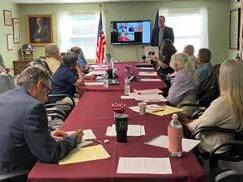
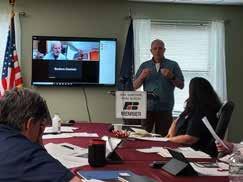
This year’s meeting was held on Tuesday, August 13th at the NHFB office in Concord. The committee heard from 15 speakers including David Rousseau, Director of the Division of Pesticide Control in the Department of Agriculture (#1); Shawn Jasper, NH Commissioner of Agriculture (#2); Charlie Cummings, CEO, Walden Mutual Bank, which focuses on supporting local farms and food systems (#3); Jasen Stock, Executive Director, NH Timberland Owners Association (#4); and Mark Zantel, ReVision Energy (solar, #6). The committee also heard from other Division Chiefs in the Department of Agriculture, the Conservation Districts, Cooperative Extension, Farm Credit East, American Farmland Trust, chair of the Current Use Advisory Board, and the Municipal Association (#5). They also heard a remote presentation by AFBF staff on foreign
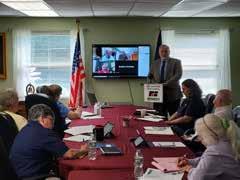
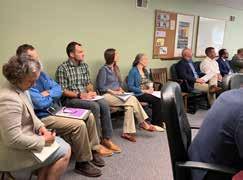
farmland ownership in the U.S. – as the NH Legislature is studying two bills dealing with farmland ownership by the Chinese government.
Of particular note, Commissioner Jasper said that as a result of the elimination of the Interest & Dividends Tax by the Legislature, the Department will have to find $800,000 in budget cuts in each year of the biennium in the Department’s next budget.
The NHFB PD Committee is chaired by NHFB First VP Beth Hodge and is made up of the NHFB Board of Directors, Committee Chairs, and county Farm Bureau PD chairs. Any farmer members interested in the PD process and in serving on a PD committee, please contact Rob Johnson, NHFB Policy Director at 603-312-6877 or robj@ nhfarmbureau.org. You may also contact your county Farm Bureau’s president.
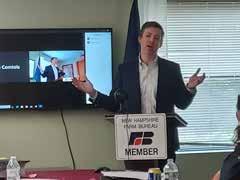
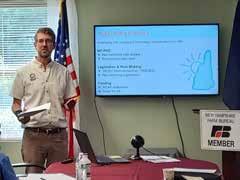
Hosted by D.S. Cole Growers in Loudon, NH on August 8th

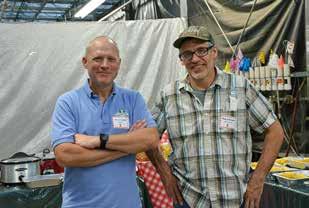
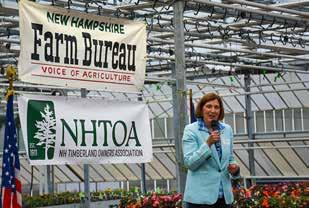

We would also like to thank the following gubernatorial candidates for joining us for “Stump Speeches”:
• Shaun Fife
• Chuck Morse
• Frank Staples
• Cinde Warmington


taken by Denis
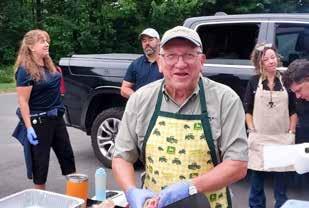
NH 4-H Livestock Auction is back at the Hopkinton Fair, September 2nd
Supporting the next generation of local agriculture



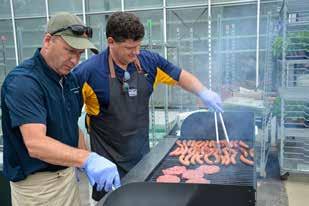
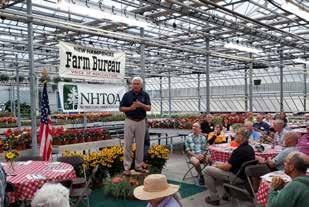
The NH 4-H Livestock Auction is making its return to the Hopkinton Fair on Monday, September 2nd. 4-H youth from across NH have been raising market beef, swine, goats, and lamb to fill the freezers of local buyers. Anyone from the public is invited to attend the auction and bid on market-ready animals. The 4-H Livestock Auction creates an opportunity for youth to not only learn about raising animals for market, but also how their product contributes to the NH agriculture industry and can provide a food source for their community members. For questions about the event, contact Hannah Majewski, NH 4-H Animal Science Field Specialist at hannah.majewski@unh.edu.
Learn more about the NH 4-H Livestock Auction, register to become a buyer, or sponsor the auction at: https://extension.unh.edu/new-hampshire-4-h/new-hampshire-4-h-livestock-show-auction
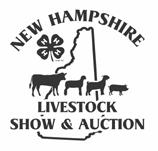
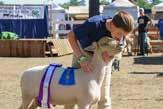
Photos
Ward, Leandra Pritchard, and Rob Johnson
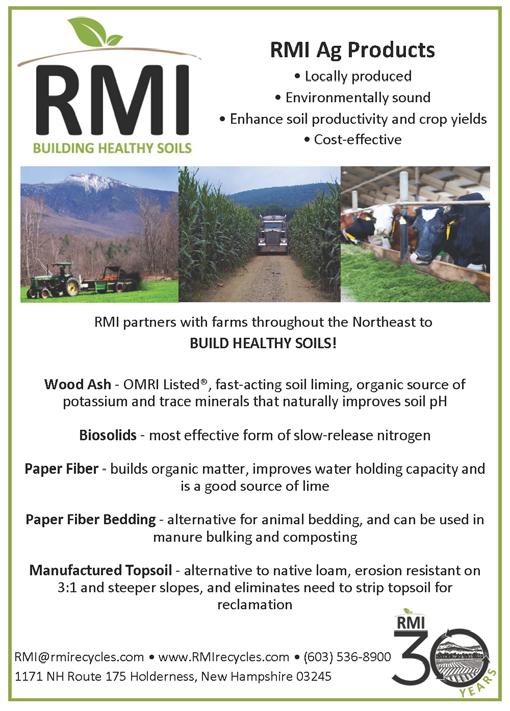
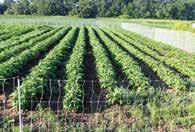
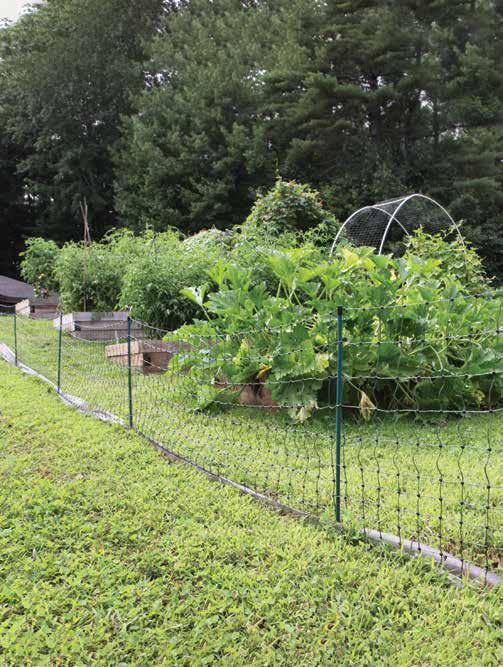
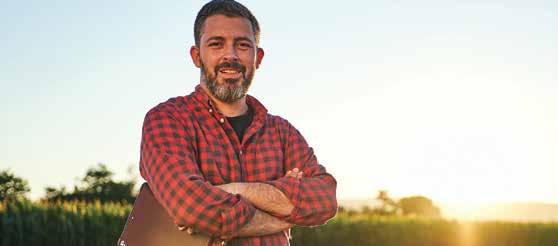
UNH COLSA/NH Agricultural Experiment Station News

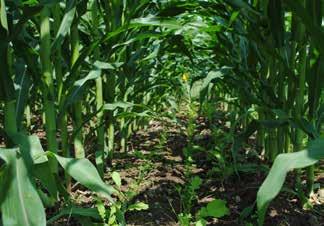
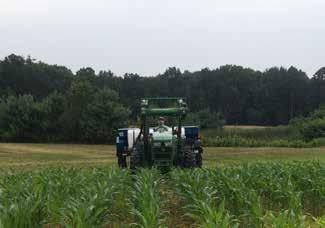
UNH Receives USDA Grant to Boost Climate-Resilient Farming Practices
Project to Explore Crop Row Orientation and Cover Cropping Strategies
Variable weather conditions continue to create challenges for farming in New Hampshire, and the 2023 growing season was no exception. From the mid-1990s to the 2010s, the Northeast has seen a 71% increase in extreme precipitation events, leading to both excess moisture and summer droughts. Higher temperatures and elevated CO2 levels are predicted to increase weed competitiveness and reduce herbicide efficacy, stressing the need for integrated weed management. To help address these issues, the University of New Hampshire has received a grant from the USDA’s Agriculture and Food Research Initiative (AFRI) to support research into innovative agricultural practices, including manipulating crop row orientation and spacing and implementing intensive cover cropping to regulate soil moisture, suppress weeds, and improve soil health. The grant is one of 10 in the country awarded through the Foundational Knowledge of Agricultural Systems program.
The project, led by New Hampshire Agricultural Experiment Station (NHAES) scientists Rich Smith and Natalie Lounsbury, will encompass field experiments at UNH’s Kingman Research Farm, and a collaboration with North Carolina State University. Field research will investigate how crop row orientation and spacing interact with and may enhance different cover cropping practices such as the use of high-residue mulch from terminated cover crops and interseeded cover crops—practices that are increasingly of interest to farmers but still have low adoption rates in New Hampshire and throughout the country. The overarching goal is to contribute to the advancement of cropping systems that optimize yields in the face of climate variability through the integration of practices that build soil health and reduce reliance on external inputs. The collaboration with North Carolina State University will leverage an existing data set from the Precision Sustainable Agriculture (PSA) Network, of which UNH has been a part, that included 400 site years of data from around the United States on crop yields, cover crop biomass, and soil moisture from 2017-2023.
“It’s crucial to understand how we can adapt our farming practices to mitigate the impacts of climate change,” said Rich Smith, a professor in UNH’s Department of Natural Resources and the Environment. “By examining the interactions between crop row orientation and cover cropping, we hope to uncover new insights that will help farmers increase productivity while preserving essential natural resources.”
Continuous monitoring of critical variables such as photosynthetically active radiation, soil moisture, and temperature in the field experiments will provide valuable insights. “These insights will inform cover cropping practices like interseeding into a standing crop and assess how these practices affect the climate-readiness of the cropping system,” added Natalie Lounsbury, a research assistant professor in UNH’s Department of Agriculture, Nutrition, and Food Systems.
This study complements ongoing NHAES projects led by Smith and Lounsbury, which explore various ways cover crops can enhance ecosystem services. The findings from this USDA-supported research will optimize cover cropping strategies, promoting diversified production systems and improving environmental quality within New Hampshire’s agriculture industry.
“Supporting regional farmers with practical, research-based solutions is at the heart of this work,” concluded Smith. “We are committed to helping farmers adopt sustainable practices that will not only improve their yields but also contribute to the overall health of our agricultural ecosystems.” For more detailed updates on this research and its applications, visit the Agroecology Lab website at https://sites.usnh.edu/agroecologylab
Yields and Nutrition: The Future of UNH’s Cucurbit Breeding
Cucurbit Breeding Program Continues with Innovative Research and New Varieties
The longest continuously running squash and pumpkin breeding program in North America is located right here in the Granite State, at the University of New Hampshire and the New Hampshire Agricultural Experiment Station. Launched in the 1940s by plant biologists A.F. Yeager and Elwyn Meader, the cucurbit breeding program grew significantly under the 53-year leadership of J. Brent Loy, whose work resulted in more than 200 hybrid and inbred varieties that became commercially available to growers in the state and far beyond.
Today, this historic research and development program is stewarded by Chris Hernandez, a Station scientist and an assistant professor in the department of agriculture, nutrition, and food systems at the UNH College of Life Sciences and Agriculture. Hernandez’s research focuses on combining modern genetics analyses with traditional breeding techniques to develop new varieties that increase yields, strengthen disease resistance and raise nutritional quality. Hernandez and his team are currently focused on two major projects: developing and incorporating into cucurbit lines a resistance to powdery mildew and building a genetic database that will enable more efficient breeding in cucurbit crops.
“With the changing climate, we have new insects and diseases that regional cucurbit crops have to contend with,” described Hernandez. “And a big aim of this research is to create cucurbits that are better suited for climate change and more nutritious for people.”
Powdery mildew is a fungal disease that impacts all cucurbits—including squashes, pumpkins, cucumbers and melons—and requires multiple fungicide applications by producers. Resistance to powdery mildew comes from breeding specific wild species with cultivated varieties to incorporate the Pm-0 gene. However, this gene may not prove effective as new strains of powdery mildew emerge, said Hernandez and the UNH cucurbits program is identifying new sources of powdery mildew resistance. Once identified, it can be incorporated into breeding lines, a research effort that is, in part, supported by the New Hampshire Department of Agriculture, Markets & Food.
The team is also collecting and cataloging genetic data, with the assistance of UNH’s Hubbard Center for Genome Studies and support from UNH Innovation. This work leverages UNH’s cucurbit collection to develop genetic tools that can be used to more efficiently incorporate disease resistance and other key traits into commercial varieties. To date, they’ve sequenced some 288 UNH breeding lines.
“This resource is similar to the database maintained by a human DNA testing company in that it’ll serve as a map of the genetic diversity of all the squash and pumpkins that have been bred right here at UNH,” said Hernandez. “From there, will can use DNA markers to identify where in the genetic makeup we might improve disease resistance, nutrition, taste and other characteristics of these various breeding lines.”
For more information on the research and breeding varieties, visit the UNH Cucurbit Breeding Program website at https://unhcucurbits.org/breeding/
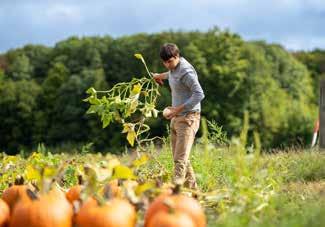
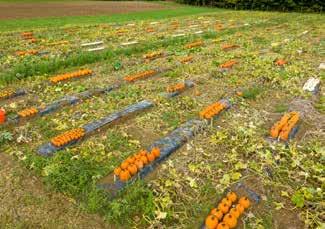
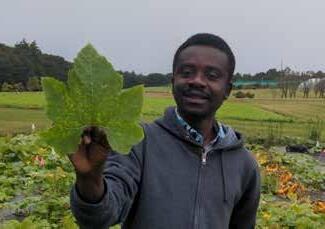
Cover crops (shown here are radishes) seeded into a standing corn crop receive limited light while the corn is growing, but are ready to take off after the corn is harvested.
Photo courtesy of UNH
Ph.D. student Joshua Addo holds up a pumpkin vine while taking measurements of powdery mildew at a plot at UNH’s Woodman Horticultural Research Farm.
Photo courtesy of UNH
Cover crops being seeded into standing corn using a modified grain drill, the “Interseeder,” which was developed at the Penn State Agricultural Research Farm.
Photo courtesy of UNH
Cucurbits breeder and NHAES scientist Chris Hernandez harvests ripe pumpkins from a plot at the UNH Kingman Research Farm. Photo courtesy of UNH
Fields of pumpkins and other cucurbits growing at UNH’s Kingman Research Farm.
Photo courtesy of UNH
EXTENSION UPDATE
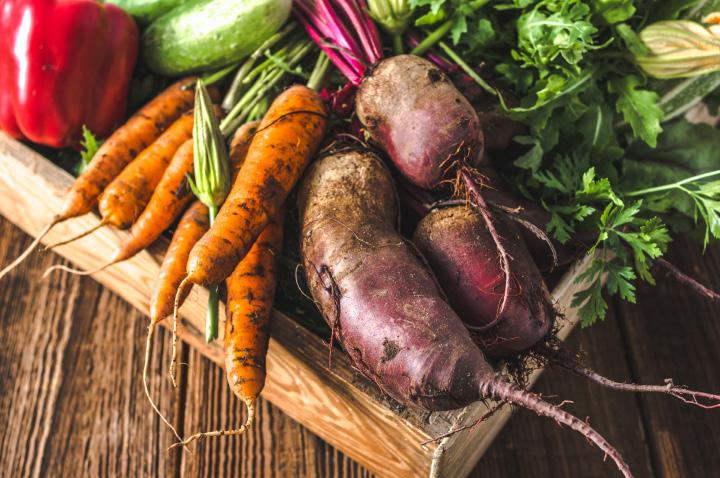
Featured Events
2024 FALL FIELD DAY
Belknap County Fairgrounds, September 18, 8 a.m. – 3 p.m., $25
The 2024 Fall Field Day is an event not to miss! This year’s field day will feature even more vendors, speakers and demonstrations than last year. Come experience hands-on interactive demonstrations including setting a bluestone patio, calibrating a backpack sprayer, using excavator-mounted lasers and much more. Credits available: 4 pesticide applicator credits; NHCLP; ISA. This is a joint program of UNH Extension, The NH Landscape Association and The NH Arborists Association.
If you have a disability, and a special accommodation would enable you to fully participate in this program, given ample time, we will make all reasonable efforts to provide accommodations. Contact amy.papineau@unh. edu or (603) 560-6576.
Questions about the event? Email: education@nhlaonline.org.
REGISTER unh.how/fieldday
RENEWABLE ENERGY SOURCES FOR GREENHOUSE ENVIRONMENTAL CONTROL
Online, October 29, 6:30-8 p.m., $10
Managing the greenhouse environment is critical for the production of healthy, profitable plants. When growers have more choices for affordable, sustainable environmental control they are able to produce healthier plants requiring fewer inputs. Join Dr. Rahman to learn about some of the new ways growers can manage the greenhouse environment.
If you have questions or would like assistance registering for or accessing the webinars, including language access, please contact Jonathan at Jonathan.Ebba@unh. edu or (603) 749-2529.
REGISTER
unh.how/renewable
Featured Program
KIWIBERRY BREEDING PROGRAM
In North Sutton, John and Erin Maynard are growing kiwiberry plants as part of University of New Hampshire research on their personal farm.
Although their farm started with sheep and has primarily been protein-focused, they have begun to shift gears. This unique breeding program in partnership with UNH is the only one in the nation and the first in the world to develop a genetic identification and selection procedure for this crop. Through this program, farmers and researchers have evaluated over 4,000 potential new varieties and advanced 29 elite selections to go to replicated trials. The goal is to find commercially viable varieties of the kiwiberry that can be used for mass production.
LEARN MORE
unh.how/kiwiberry
Featured Resource
“SHARED SOIL” PODCAST
Hosts Kendall Kunelius and Rebecca Dube for Extension’s new “Shared Soil” podcast create a relatable and welcoming space to learn and celebrate. This podcast is dedicated to creating community, honoring challenges and encouraging personal and professional growth for all people in agriculture. Specifically, we look to women and women-identifying farmers as our inspiration and audience!
LISTEN TO PODCAST
unh.how/SharedSoil
Featured Research
RADICCHIO VARIETIES
Scientists with the New Hampshire Agricultural Experiment Station are researching which radicchio varieties perform best in northern New England’s varied climate and how planting date impacts performance of this increasingly popular and valuable crop.
Upcoming Events
AGRICULTURE EVENTS
bit.ly/extension-ag-events
4-H EVENTS
bit.ly/4h-events
Extension Services
PLANT DIAGNOSTIC LAB
Questions?
Reach out to the lab at unh.pdl@unh.edu or 603-862-3043.
bit.ly/plant-diagnostic
SOIL TESTING
Questions?
Email soil.testing@unh.edu or leave a message for Shyloh Favreau at (603) 862-3200
bit.ly/Extensionsoil
VISIT OUR WEBSITE!
Explore upcoming events and programming.
bit.ly/Extensionag
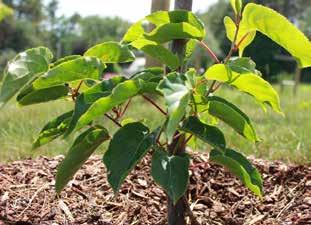
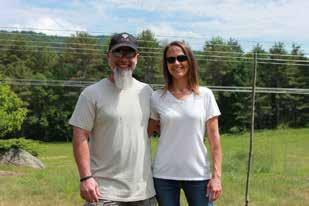
LEARN MORE
unh.how/radicchio
The University of New Hampshire Cooperative Extension is an equal opportunity educator and employer. UNH, U.S. Dept. of Agriculture, and New Hampshire counties cooperating. Direct inquiries to unh. civilrights@unh.edu.
Photo Credit: (Top) alicja neumiler- Adobe.stock.com © 2024 University of New Hampshire
John and Erin Maynard
Kiwiberry plant
CONFERENCE CONFERENCE

July, NHFB President Joyce Brady and NHFB Policy Director/Acting Administrator Rob Johnson attended the Northeast Presidents’ & Administrators’ Conference in Mystic, CT, hosted by Connecticut Farm Bureau. The annual conference enables Farm Bureau leaders within the region to get to know one another, compare notes as a group regarding what the challenges farmers & their Farm Bureau organization are experiencing, and see if there are ways to work together. Discussions focused on Farm Bureau member recruitment, retention, and organizational operations. Presentations included hearing from Farm Credit, the CT Commissioner of Agriculture, the Dean of the UConn College of Agriculture, Health & Natural Sciences as well as from AFBF staff. Attendees were from CT, DE, MA, ME, NH, NJ, NY, RI, NY, & PA. Pictured below are some of the fellow Farm Bureau State Presidents and American Farm Bureau Federation (AFBF) staff Joyce caught up during the conference. (Photos by Rob Johnson).
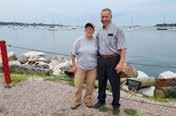
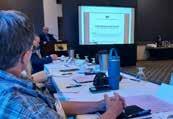

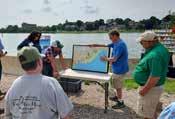
Paul Larson, President of Connecticut Farm Bureau. Paul owns and operates with his wife Joyce, Sprucedale Gardens Greenhouse & Nursery in Woodstock, CT. Sprucedale’s specialty is growing and selling plants and also includes a garden shop and offers landscape design. Paul is also a beekeeper with his honey, Paul’s Bees. Conference attendees enjoyed an evening at Abbott’s Lobster in the Rough, a waterfront restaurant at the mouth of the Mystic River in Noank.
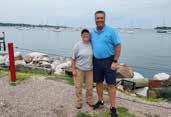
Zippy Duvall, President, AFBF addressing attendees. Duvall, who has been President since 2016, is a former dairy farmer from Greensboro, Georgia (about an hour east of Atlanta). He now, with his son, raises beef cattle and broiler chickens

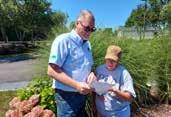
Oyster hatchery and operation in New London, Connecticut. Presidents Brady and Duvall view a map showing a grid of oyster leases in Long Island Sound.
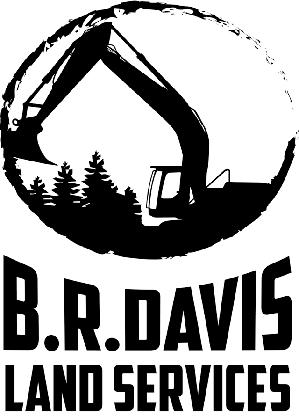

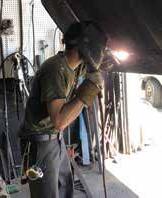
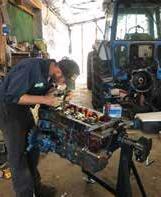
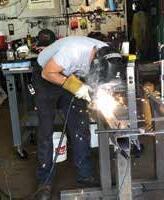
Chris Hoffman, President, Pennsylvania Farm Bureau. Chris owns and operates Lazy Hog Farm, a farrow to finish operation, and Lazy Chick Farm, a meat bird operation in which he currently supplies a local kosher processor in McAllisterville (central PA between Hersey and State College). In 2019, Chris was awarded the America’s Pig Farmer of the Year Award by the National Pork Board.
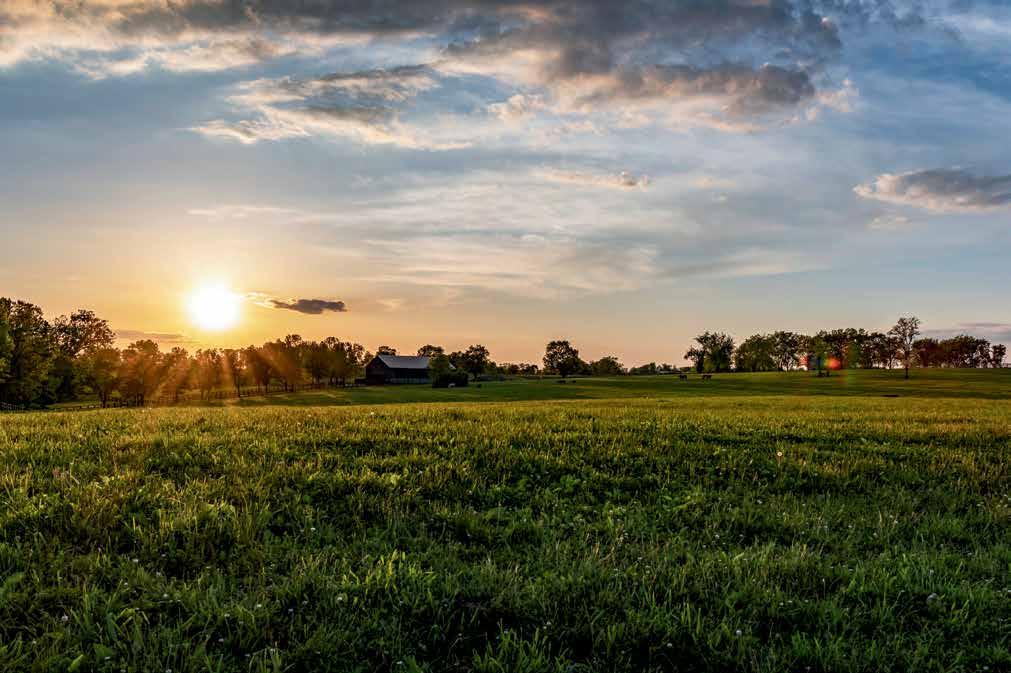
Austin Large, Senior Director, Membership & Organizational Development
Allen Carter, President, New Jersey Farm Bureau. Allen is the business administrator for Tuckahoe Turf Farms in Hammonton, NJ (southern NJ between Atlantic City and Philadelphia, PA). Tuckahoe produces and installs turf grass for many of the professional ball fields in the northeast.
Warren Shaw, President, Massachusetts Farm Bureau. Warren owns & operates Shaw Farm in Dracut. Shaw Farm is a dairy with farm store, milk bottling plant, and ice-cream manufacturing facility. They also offer home delivery, including to Hudson, Pelham, and Windham, New Hampshire!
Joby Young, Executive Vice President, AFBF
Benefits of Your NH Farm Bureau Membership

D NHFB has been “The Voice of Agriculture” in New Hampshire for over 100 years
D Farm Bureau is your advocate in the legislature for all agriculturally-related issues
D Farm Bureau fights for farmers and landowners at the state and national level
D Your voice is heard when you partake in our grassroots policy system at the County level
D Farm Bureau holds a seat at the table during all important discussions in regards to our farming community
D Farm Bureau has connections to the other agricultural organizations in the state and works closely with them when facing issues in the legislature
D NHFB only advocates for what YOU, as members, deem as important policies
D Want to learn more about our advocacy efforts? NHFB members can request the Friday Review to stay informed on legislative activities and calls-to-action
D Meet other NH farmers!

Advocacy Networking Resources
D NH Young Farmers meet monthly for industry tours, leadership trainings, community service projects, and to socialize
D The Associated Women meet monthly with a mission to communicate the NH agriculture story
D County Farm Bureaus hold regular meetings to discuss local matters, hold industry tours, perform community service, and socialize
D NHFB’s Annual Meeting each November includes business and social activities for members across the state


D NHFB’s weekly e-newsletter, The Post, lists upcoming agricultural events and workshops, and also includes resources and informative articles
D All NHFB members receive our newspaper, The Communicator, in their mailboxes bi-monthly which brings the “News to NH Farm Bureau Families”
D As a NHFB member, you can include your meat products, vegetables & fruits, ag products & services, other edible products, and hay crop on our member listings page, and in the Classifieds section, which are included in every issue of The Communicator and always on our website
D Access to the New Farmer Toolkit with pertinent information on running a farm business
NHFB Member Offers
& Business

American National Insurance Special Rate Plans for NHFB Members







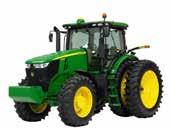














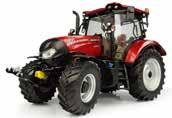
Farmer to Farmer Classifieds
Connecting NHFB members! See what others have to sell AND what you want to buy!
NHFB’s Farmers’ Market is a free classified ad service to all NHFB members. If you have something to sell, buy or trade, this is your place to get noticed. Ads can be emailed to editor@nhfarmbureau.org. Want more information? Call us at 603-224-1934.
FOR SALE
FOR SALE: Livestock Guardian Dog pups. Born & raised with livestock. Great Pyranees-MaremmaAnatolian. From working parents. 1st shots, wormed, Health Certificate & booklet on raising & working with LGDs incl. Ready to bond to your livestock. Also a couple young adults. Call Gordon at 603-490-0899
FOR SALE: John Deere 4030 tractor with loader, $15,000. Call Alan Savage at 603-788-4484.
FOR SALE: 3 Tunis ram lambs, 1 born 12/23, 2 born 3/24. Weaned. Can be registered if wanted. 4-H & FFA discount. $150 each or $400 for all. Delivery possible. Phone Deb Robie at 603-747-3869 or email wehunt4@ myfairpoint.net.
FOR SALE: IH Model 27 Baler with bale thrower. Always under cover. For parts only. $500. Call Wayne at 603225-9656 Concord, NH.
FOR SALE: Irrigation Pipe - Hook and Latch, 2” pipe –3000 feet (100 pieces,* some with sprinklers and 8” risers) $1.50 per ft, 6” pipe – 800 feet (26 pieces) $5.00 per ft, (2) Nelson 100 guns 24 degree angle – 1” nozzle $500.00 each. Call Wayne at 603-225-9656 Concord, NH.
FOR SALE: Maple Equipment: SS (good) $500. Gold (good) $300. Maple Miscellaneous12 qt. (good) $75 New only) - 3.4 oz. NH $50/case. - 603-224-9548 evenings.
FOR SALE: Farm Raised Red Deer / Elk Crosses for Sale 13 animals – Breeding stock bucks & does available or for meat. Call for pricing. Maple Ridge - Wentworth, Contact Lance Rand at 603-726-
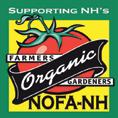
FOR SALE: Loader to fit 1950 John Deere Model A tractor, call Alan Savage at 603-788-4484.
FOR SALE: Farmall Super C. Fully restored - $6,000. Boscawen at 603-796-2779.
FOR SALE: John Deere – 47 Quick Hitch Snow Thrower. For M700 riding mowers and up. Excellent condition$1800. Boscawen at 603-796-2779.
FOR SALE: Hardee long reach cutter - $9,000. Concord. Call Robert at 603-224-3036.
FOR SALE: Honda Brush cutter-Trimmer HHT35S. This is a professional commercial quality heavy duty Brush cutter/weed trimmer. Handlebar type, 4 cycle engine uses straight gasoline-no oil mixing. Complete with safety harness, brush saw blade, kwik loading string trimmer, etc. $250 Call Richie @ 603-465-2672.
FOR LEASE/RENT
FOR LEASE/RENT: Horse/Livestock Boarding, A la carte pricing, reasonable rates, stall run out to separate
continue to grow. If you know of any fields that may be a good fit, please reach out to us! Call Seth at 603-7150067 or email mooserunfarm@gmail.com.
WANTED: Cheesemakers, butter or yogurt processors interested in grass fed jersey milk. Farmington, NH Contact Bob at 603-834-3240.
WANTED: Green thumbs wanted! *I am currently restoring a 200 year-old 15 acre farm in Bow, NH. The land has been cleared, stumped, graded and is ready for farming. Looking to do a co-op farm and manager/ partner. Currently have 2 acres devoted to High Bush Blueberries and 1000 Christmas trees. 10 acres available for 30x20 garden plots or 1/4 acre parcels or more. Please contact Rodger Bruce Letendre at 603867-8067.
HELP WANTED
HELP WANTED: Part-time paid work: including cleaning the Yaks barn, maintaining pasture, assisting with wrangling the Yaks for Veterinarian and farrier visits, planting and weeding an organic veggie garden, minor fence repair when needed, moving items (must be able to lift at least 50 lbs), moving hay from the main barn to the feed room, etc. Must have your own transport and our road requires an AWD vehicle. Summer hours average about 2-3 hours per day for 3-4 days per week. Paid at $20 per hour. Must have experience with livestock. Can lead to a live-in situation. Call Trisha at 603-303-1911 or email trisha@woodsleyventures.com.
Seeking motivated person to join our Certified Organic vegetable farm and kitchen. Experience with mechanical, agricultural, sales, and kitchen protocols a plus! Pay negotiable based on experience and interest. Base pay $14/hr. Drivers license required. Strafford, NH - text John at 603-781-2931.
Support for Farmers in Transitioning to Organic
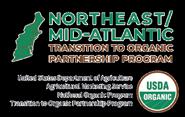
Transitioning to USDA certified organic farming can be a rewarding endeavor, offering numerous benefits, including access to premium markets and environmentally sustainable farming practices However, the process requires a significant investment of time, effort, and resources Fortunately, various support organizations are available to help farmers navigate this transition This article provides information on available support to transition to USDA certified organic farming USDA TOPP Mentorship Program
Transition To Organic Mentorship Program (TOPP) is a free Mentorship program connecting transitioning farmers with experienced organic farmers who can offer practical advice and support These programs open the door for knowledge exchange and provide valuable insights into the challenges and successes of organic farming Mentorship can be particularly beneficial during the early stages of the transition, helping farmers troubleshoot issues and refine their practices The TOPP Mentor will work with a transitioning farmer to create their Organic System Plan, which is required for certification
The Northeast Organic Farming Association of New Hampshire (NOFA-NH) administers the TOPP program in NH and can provide additional technical assistance to transitioning farmers
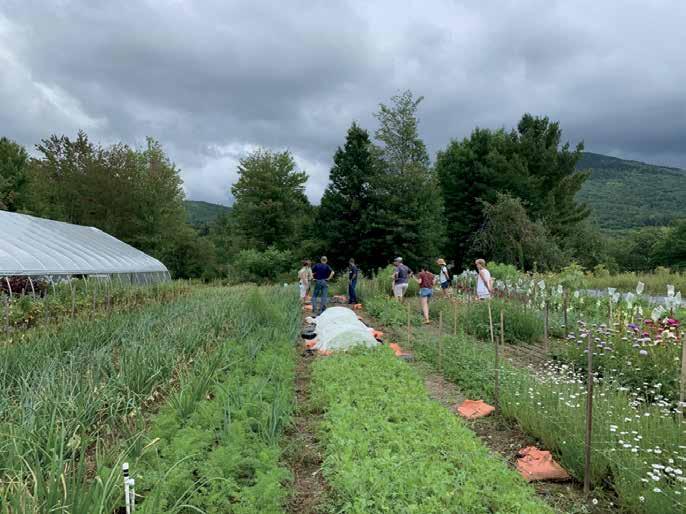
Technical Assistance
Organic Transition Initiative (OTI): The OTI offers comprehensive support for farmers transitioning to organic production This initiative provides guidance on organic standards, certification processes, and best practices for organic farming Farmers can access resources on soil fertility management, pest control, and crop rotation, all essential components of organic agriculture Once a farmer has certified, many other programs become available
Financial Assistance
Organic Certification Cost Share Program (OCCSP): The USDA’s Farm Service Agency’s OCCSP is designed to alleviate the financial burden of obtaining organic certification The program reimburses eligible operations for up to 75% of certification costs, capped at $750 per certification scope This assistance can reduce the financial strain associated with transitioning to organic farming
Environmental Quality Incentives Program (EQIP): EQIP, administered by the USDA Natural Resources Conservation Service (NRCS), provides financial and technical assistance to farmers implementing conservation practices These practices often align with organic farming requirements, such as improving soil health, water quality, and biodiversity By participating in EQIP, farmers can receive funding to help cover the costs of adopting organic-compatible practices during the transition period
Educational Resources
ATTRA (Appropriate Technology Transfer for Rural Areas): ATTRA offers a wealth of information on organic farming practices Their resources include publications, webinars, and technical guides on topics such as organic soil management, pest control, and crop production ATTRA's materials are designed to help farmers understand and implement the practices necessary for successful organic farming Many more resources are available at nofanh org/topp
A TOPP mentor can help guide you through all these steps
Steps to Transitioning
1 Research and Planning: Begin by thoroughly researching organic farming practices and the USDA organic standards Develop a detailed transition plan that outlines the steps you need to take, including changes in crop management, pest control, and soil fertility practices
2. Soil and Crop Management: Focus on building healthy soil through practices such as cover cropping, crop rotation, and composting Select crop varieties suited to organic production and develop a pest management strategy that relies on biological control methods and organic-approved inputs, (OMRI being one example)
3 Certification Process: Contact a USDA-accredited certifying agent to start the certification process Submit an application and an Organic System Plan (OSP) that details your farming practices The certifying agent will conduct an on-site inspection to verify compliance with organic standards
4 Maintain Records: Keep detailed records of all farming activities, inputs, and management practices Record-keeping is crucial for maintaining organic certification and demonstrating compliance with USDA standards during annual inspections
Transitioning to USDA certified organic farming is a challenging but rewarding journey With the support of TOPP, an experienced organic farmer, financial assistance programs like OCCSP and EQIP, technical guidance from OTI, educational resources from ATTRA and others, farmers can successfully navigate the transition By leveraging these resources, farmers can achieve certification, improve their farm’s sustainability, and access the growing market for organic products Contact NOFA-NH's TOPP Coordinator Teresa Downey by email or phone to learn more at teresa@nofanh org or 603-224-5022
Interested in learning more?
Contact teresa@nofanh org to find out how you can support & expand the organic community in New Hampshire or visit https://www nofanh org/topp
Join the monthly Farmers Organic Roundtable to learn more about organic production, problem-solve, share insights, and build community This is an informal discussion group All are welcome Find out more on our website https://www nofanh org/topp or register directly at https://form jotform com/233183091517151 or scan the QR code ----->

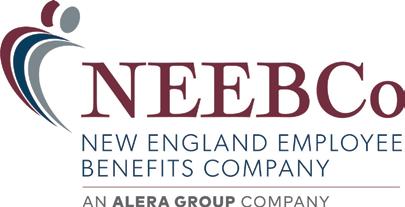

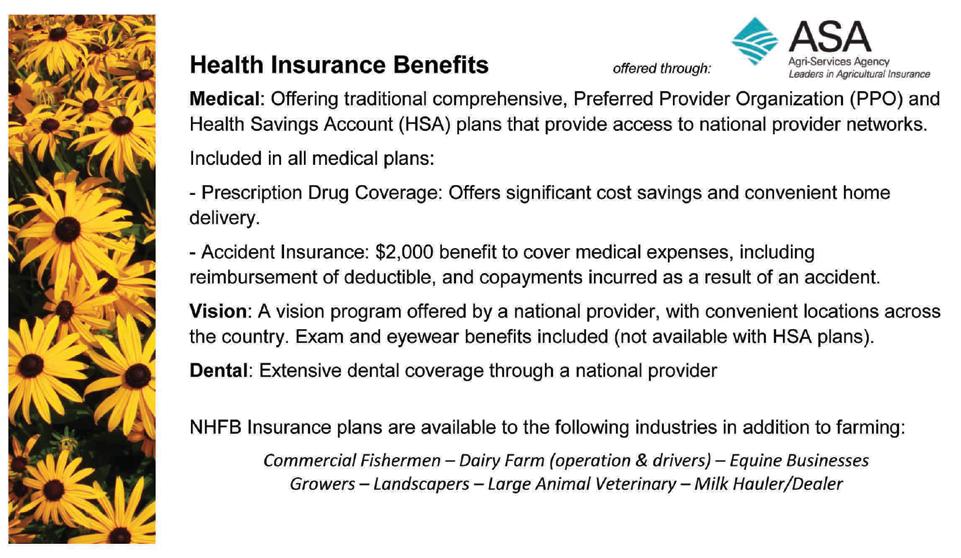

COUNTY ANNUAL MEETINGS
Belknap: Thursday, October 3rd, Timber Hill Farm, Gilford, NH
Carroll: Not yet announced
Cheshire: Monday, October 14th at the Inn at East Hill Farm in Troy
Coos: Wednesday, September 18th at the Lancaster Fairgrounds 4-H Building
Grafton: Wednesday, September 25th at Hatchland Dairy Delites in North Haverhill
Hillsborough: Not yet announced
Merrimack: Friday, October 11th at Dell Lea in Chichester
Rockingham: Tuesday, October 15th at J&F Farms in Derry
Strafford: Thursday, October 10th at the Jeremiah Smith Grange Hall in Lee
Sullivan: Tuesday, September 17th at the Common Man in Claremont
Questions:
Call the NHFB office at 603.224.1934
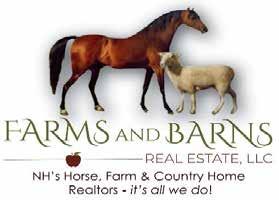
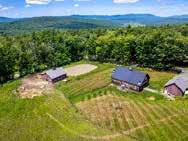
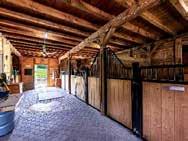
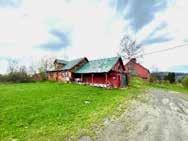
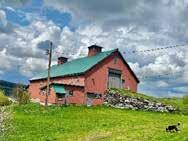


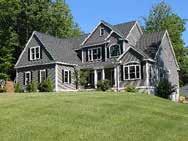
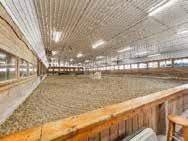
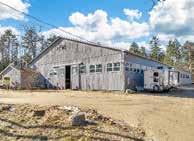
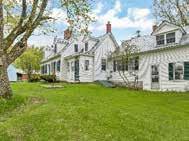
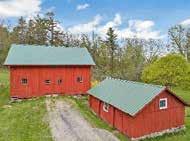
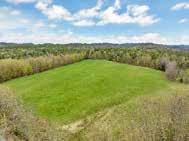

Join NHFB at the 2025 AFBF Convention
January 24-29,
2025
The 2025 Convention is held in San Antonio, Texas. The convention and hotel are right on the River Walk. There are captivating workshops, an enormous trade show, engaging farm tours, and more at Convention!
The theme of the 2025 American Farm Bureau Convention is “Step Up, Drive Forward.”
The American Farm Bureau Convention is the go-to event to meet other farmers and leaders, hear from experts, learn about new tools and trends and be inspired to step up and drive forward in 2025.
Cheer on our young farmers as they bring their best to the high-stakes YF&R competitions including: Achievement Award, Excellence in Ag Award and Discussion Meet.
If you are interested in joining other New Hampshire Farm Bureau members to the AFBF Convention, please contact Rob Johnson at 603-224-1934 or robj@nhfarmbureau.org.

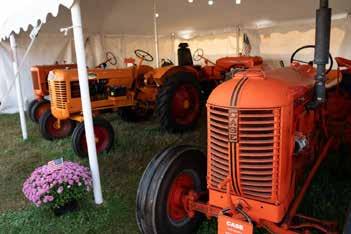


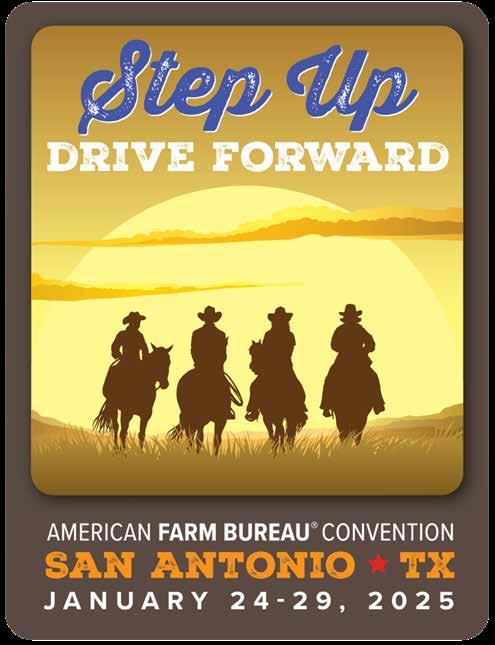
Enjoy local products at the NH Farm Bureau
Deerfield Fair Dairy Booth!
Each year, NHFB showcases local dairy products at their booth at the Deerfield Fair! We source ice cream from Granite State Candy Shoppe and milk from Contoocook Creamery. You are sure to have your tastebuds delighted with delicious local ice cream and frappes!
You can find NHFB in the building attached to the Milking Parlor at the corner of “Milky Way” and “Commercial Lane.”
Come by, say “hello,” and enjoy a wonderful fair treat that supports New Hampshire businesses!
The Deerfield Fair is Thursday, September 26-Sunday, September 29, 2024.


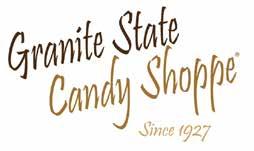
LEGISLATIVE CORNER LEGISLATIVE CORNER
by Robert Johnson, NHFB Policy Director/Acting Adminstrator
LEGISLATIVE CORNER (From page 13, continues on page 25)
received by the state in settlement of PFAS litigation will be deposited in the Drinking Water and Groundwater Trust Fund and used to provide grants and loans to public water systems whose water sources have been impacted by PFAS above applicable standards.
The products ban includes the following language:
Product Ban. On January 1, 2027, the following PFAS-added consumer products shall be prohibited from being sold, offered for sale, or distributed for sale or for promotional purposes in the state: Food packaging and containers.
“Food packaging and containers”’ means a container applied to or providing a means to market, protect, handle, deliver, serve, contain, or store a food or beverage. Food packaging includes:
(1) A unit package, an intermediate package, and a shipping container;
(2) Unsealed receptacles, such as carrying cases, crates, cups, plates, bowls, pails, rigid foil and other trays, wrappers and wrapping films, bags, and tubs; and
(3) An individual assembled part of a food package, such as any interior or exterior blocking, bracing, cushioning, weatherproofing, exterior strapping, coatings, closures, inks, and labels. Effective: 8/2-10/1/2024, Chapter Law 349.
HB 1678-FN, establishing a New Hampshire farm to school local food incentive pilot program. Establishes a 2-year pilot program within the NH Department of Agriculture, Markets and Food (DAMF) in which grant funding will be provided to school administrative units for the purchase food “originating in New Hampshire” for school meals. DAMF will administer an open grant request for applications process, with the goal of awarding funds to one applicant in each county of the state. Products will be reimbursed at 33.3 % of cost. The program is to be administered by DAMF utilizing a selection committee to include a farmer representative. Appropriates $120,500 in each FY2024 and FY 2025 (ending June 30, 2026). It is anticipated state funding will leverage available federal funds.
Effective: 9/10/24, Chapter Law 208. Support
HB 1697-FN, (New Title) relative to forest carbon credit programs.
Requires the Department of Revenue Administration to conduct a study of the issues related to lost timber tax revenue as a result of forest lands located within New Hampshire being enrolled in carbon credit offset programs. A preliminary report including findings and any recommendations
for proposed legislation is due on or before November 1st and a final report is due on or before November 1st 2025.
Also requires the Department of Cultural and Natural Resources, Division of Forest and Lands to establish and maintain a public registry of all forest lands in the state enrolled in a carbon program.
Also requires landowners od such land file a notice of enrollment with the Division and to notify the municipality or municipalities where the land is located, or the applicable governing body or bodies of the territory in which the land is located, of the filing of a notice
Effective: 7/19/24, Chapter Law 255.
Use of Drones for Pesticide Application Made Practical
HB 1698-FN, relative to the use of drones for the aerial application of pesticides.
Amends outdated statute (RSA 430:34-a) to make practical the use of “unmanned aircraft” – the term used in the amended law - for the application of crop protectants. Drone users under the statute must:
• Be a licensed pesticide applicator.
• Hold a Federal Aviation Administration Part 107 certification which is required to fly unmanned aircraft for any commercial purposes.
• Be applying pesticides solely for agricultural purposes at a height not exceeding 20 feet above ground.
Effective: 9/1/24, Chapter Law 142. Support
SB 385, relative to the cost of care fund.
The Cost of Care Fund (RSA 437-B), administered by the NH Department of Agriculture, Markets and Food, was established in 2020 to assist municipalities in covering costs of care incurred from caring for animals pending resolution of any action brought for animal cruelty. The amended law enables payments be made directly to a third party caring for animals on behalf of a municipality. Previously disbursements from the fund were required to be sent to municipalities as reimbursements.
Effective: 7/30/24, Chapter Law 38.
SB 395, relative to establishing the position of assistant commissioner of the department of agriculture, markets, and food.
The position was funded in the state budget for the current biennium (7/23 – 6/25) but lacked language in statute establishing the position. Amends current law relative to the Department of Agriculture, Markets and Food by striking language and adding language in bold italics as follows:

RSA 425:3 Commissioner; Compensation and Assistant Commissioner of Agriculture.-
I. The commissioner of the department of agriculture, markets, and food shall be appointed by the governor, with the consent of the council, for a term of 5 years. Prior to the appointment of a commissioner, the governor and council shall receive and consider the recommendations of the agricultural advisory board as to such appointment. The commissioner of agriculture, markets, and food shall be qualified by reasons of professional competence, education, and experience.
II. The salary of the commissioner shall be as specified in RSA 94:1-a.
III. The commissioner of agriculture, markets, and food shall appoint one staff member who shall act in the commissioner’s stead when the commissioner is absent from the state and at such other times as the commissioner shall direct The commissioner of agricultural, markets, and food shall nominate for appointment by the governor, with the consent of the council, an assistant commissioner who shall serve at the pleasure of the commissioner
IV. The assistant commissioner shall perform such duties as are assigned by the commissioner. The assistant commissioner shall assume the duties of the commissioner in the event that the commissioner is unable for any reason to perform such duties.
V. The salary of the assistant shall be as specified in RSA 94:1-a.
The salary range for the Assistant Commissioner’s position is $87,373 – 121,751.
The salary range for the Commissioner position is $95,153 – 132,619.
Effective: 4/12/24, Chapter Law 7. Support
SB 441, relative to establishing an advisory group to examine potential funding sources for career and technical education (CTE) construction and renovation.
The advisory group will be appointed by the Commissioner of Education and, in addition to education administrators, will include two representatives from business and industry. In addition to studying funding sources, the advisory group is tasked with studying “the feasibility of joint or colocated CTE programs with the Community College System of NH and NH high school CTE programs associated with regional CTE centers.
Effective: 7/26/24, Chapter Law 293.
SB 514-FN, relative to the timber tax. Increases the amount of wood a landowner may cut (for their own use or land conversion purposes) each year and be exempted from filing an Intent to Cut and paying the Timber
LEGISLATIVE CORNER LEGISLATIVE CORNER
by Robert Johnson, NHFB Policy Director/Acting Adminstrator
LEGISLATIVE CORNER (From page 24, continues on page 26)
Tax under (RSA 79:1, II(b)) as follows:
• From up to 10,000 to up to 15,000 board feet of logs; and
• From 20 to 30 cords of fuel wood. (The law enables any amount for maple sugaring purposes.); and
• Current law reading “or the equivalent in whole tree chips” has been struck and has been changed to “and 300 tons of” whole tree chips
Effective: 7/1/24, Chapter Law 19. Support
SB 542, (New Title) creating a committee to study fish and game department funding and partnerships.
The committee is made up of three members of the NH House and one member of the NH Senate. A report, to include any recommendations for proposed legislation, is due on or before November 1st
Effective: 7/26/24, Chapter Law 302.
SB 545-FN, (New Title) Establishing a committee to study the scope and role of veterinary technicians.
The duties of the committee, made up of three members of the NH House and one member of the NH Senate, are as follows:
The committee’s study shall include, but not be limited to:
(a) The current scope of practice for veterinary technicians.
(b) Practice opportunities outside of the current scope that would benefit the system of animal care in New Hampshire, with a focus on large animal veterinary care.
(c) The licensure of veterinary technicians, particularly the value of licensure to enhancing large animal veterinary services in New Hampshire.
A report, to include any recommendations for proposed legislation, is due by November 1st. The bill as introduced established an education repayment incentive program for large animal veterinarians who practice in underserved areas of the state. As there is a similar existing federal program that has been underutilized in New Hampshire, the bill was amended at Farm Bureau’s request.
Effective: 7/26/24, Chapter Law 304. Support
SB 587, relative to animals brought into this state.
Enables the Department of Agriculture, Markets and Food to adopt exemptions to quarantine requirements for dogs, cats, or ferrets brought into the state for transfer that would enable littermates, with age restrictions, to share appropriately sized enclosures.
Effective: 8/13/24, Chapter Law 91.
Bills Found Inexpedient-to-Legislate (ITL), Tabled, or Refusal to Establish Committee of Conference
(All bills found ITL unless otherwise noted.)
CACR 14, relating to the environment and natural resources. Providing that the state shall maintain and improve a clean and healthful environment for present and future generations. Supported a question be placed on the November ballot to voters to determine whether or not the state constitution should be amended to add the following article:
[Art.] 83-a. [Protection of the Environment and Natural Resources.] The people of this state shall maintain and improve a clean and healthful environment in New Hampshire for present and future generations. The legislature and magistrates shall provide adequate remedies for the protection of the environmental life support system and provide adequate remedies to prevent unreasonable depletion and degradation of natural resources.
Oppose
HB 1033, relative to the advertising of nominal dimensions of lumber. Required all lumber, logs, timber or other wood products advertise their true dimensions and not a nominal size.
HB 1053, relative to permissible residential units in a commercial zone. Provided new or rehabilitated buildings in municipally zoned commercial districts allow residential uses as a matter of right.
HB 1100, relative to coyote hunting. Prohibited coyote hunting From April 1 through July 31 to coincide with coyote pup rearing. – Tabled Oppose
HB 1102-FN, relative to the definition of animal cruelty. Added the sale of animals with birth deformities to the definition of animal cruelty in the animal cruelty statute (RSA 644:8) by adding the following language to the law: “that has a birth deformity that causes suffering, such as brachycephaly, or the intentional breeding with the intent to sell, 2 individual animals with the same birth deformity that causes suffering, such as brachycephaly.” Oppose
HB 1110, relative to requiring certain employers to use the federal E-Verify system of the United States Citizenship and Immigration Services. Required all employers with 25 or more employees to use the E-Verify system. Oppose
HB 1173-FN, relative to the disposition of vicious dogs. Provided for the euthanizing of any dog found by a court to have attacked humans or domestic animals and which resulted in the

puncture or tearing of skin 2 or more times in a 12-month period – established as per se evidence that a dog is vicious. Oppose
HB 1182-FN, adding certain equine practices to the definition of animal cruelty. Added the practices of hoof soring, tail nicking, tail blocking, and gingering as crimes under the animal cruelty statutes (RSA 644:8). Oppose
HB 1184-FN-A, relative to making an appropriation to the organic certification program. Made an appropriation of $220,000 to the Department of Agriculture, Markets and Food for the staffing and funding of the organic certification program. Support
HB 1208-FN, relative to permitting requirements before timber harvesting operations in a wetland. Required persons or entities conducting timber harvesting operations in wetlands to verify compliance with and maintain in their records all permitting documents required for the work being done. – Tabled Oppose
HB 1215, (Second New Title) relative to development approvals and appeals, and allowing the town of Hampton to discontinue a particular highway in order to lease that property.
Established the precedent of the Legislature authorizing a town selectboard to discontinue a public roadway, bypassing the local town meeting process. The discontinuance of a municipal road has historically been the prevue of the local voters. Oppose Also changed subdivision development timeframes and building code & fire code appeals. This included increasing the timeframe in which site plan approvals are exempted from subsequent changes in local regulations from 5 years to 10 years.
HB 1234-FN, relative to the repair of class VI roads not maintained by a municipality. Required residents on a Class VI Road contribute to the roadway’s maintenance. As Class VI roads are unmaintained public roads, would in effect have required private money be spent to maintain a public way. Oppose
HB 1294-FN, (New Title) establishing a committee to study ways to facilitate municipal compliance with Clean Water Act requirements. Introduced with the title: relative to prohibiting the state of New Hampshire from enforcing the regulations of the Environmental Protection Agency which declared the federal Environmental Protection Agency has no constitutional validity in the state, and required the NH Department of Environmental Services provide for all environmental protection in the state.
HB 1316, relative to co-ownership of dogs. Defined co-ownership of dogs.
LEGISLATIVE CORNER LEGISLATIVE CORNER
by Robert Johnson, NHFB Policy Director/Acting Adminstrator
LEGISLATIVE CORNER (From page 25, continues on page 27)
HB 1325 , relative to allowing private ownership of small tailed monkeys, raccoons, foxes, otters, skunks, and kangaroos.
HB 1326-FN, relative to notification processes for large groundwater withdrawal applications. Required written notice via U.S. mail “to all owners of property or residents within a 10,500 foot- radius” of any large groundwater withdrawal. Currently the Groundwater Protection Act (RSA 485-C) requires the Department of Environmental Services hold a public hearing within 30 days in the municipality of an application being submitted. A notice of the public hearing must be printed in two newspapers and posted in two public places.
RSA 485-C:2, IX-a. “Large groundwater withdrawal” means any withdrawal from groundwater of 57,600 gallons or more of water in any 24-hour period at a single property or place of business except withdrawals associated with short-term use.
HB 1327, relative to the definition of farmers’ market. Made changes to the definition of “farmers’ market” in statute by removing any requirement vendors sell agricultural commodities. (Following discussions with Farm Bureau, the prime sponsor of the bill requested it be found ITL.) Oppose
HB 1484-L, relative to current use taxation for certain forested lands. Prohibited forest land enrolled in a carbon credit program from eligibility under Current Use assessment. Oppose
HB 1501-FN-L, repealing the requirement to register dogs annually. Oppose
HB 1503-FN, relative to the definition of wetlands. Excluded areas meeting the wetlands definition due to the failure of any governmental public works project, including failed culverts. Wetlands are defined in statute as follows:
RSA 482-A:2, X. “Wetlands” means an area that is inundated or saturated by surface water or groundwater at a frequency and duration sufficient to support, and that under normal conditions does support, a prevalence of vegetation typically adapted for life in saturated soil conditions.
HB 1505, establishing an animal abuse offender registry (in the NH Department of Safety). Oppose
HB 1519, relative to a minor’s available work hours. Permitted youths the ability to work during the school year at any time their attendance is not required.
HB 1527-FN, relative to criminal trespass. Amended the state’s Prescribed Manner of Posting statute (RSA 635:4) to enable posting property using purple paint markings. Oppose
HB 1529, relative to the use of unpasteurized eggs. Allowed the use of unpasteurized eggs by food service establishments and retail food stores. (The bill was introduced in response to an ice cream producer’s desire to use unpasteurized eggs in custard-based ice cream. It was found unpasteurized eggs are already allowed to be used in food service establishments and retail food stores - therefore the bill was found unnecessary.)
HB 1556-FN, relative to exemptions from the rabies vaccine. Removed the requirement that dogs exempt from the rabies vaccine be muzzled when outdoors. Oppose
HB 1572-FN, prohibiting using mRNA technology in food (sold in NH) and requiring the labeling of lab grown meat and food containing insects. Oppose
HB 1574-FN, removing regulations on the direct sale of raw milk to consumers. Removed all limitations on direct-to-consumer sales of raw milk contained in the “producerdistributer” licensure exemption in RSA 184:84, V, including the existing 20 gallon per day sales limit on fluid milk or equivalent product(s). Oppose
HB 1575, prohibiting the state of New Hampshire from enforcing any federal agricultural checkoff program. Oppose
HB 1576-FN, relative to allowing property owners to opt out of public utilities. Clarified statute to enable property owners to decline public utility services.
HB 1578-FN, relative to organic food certification and labeling. Repealed the organic certification program in the NH Department of Agriculture, Markets and Food. The program is being discontinued by the Department but the statute authorizing the program in RSA 426 needed to remain in place until the program has completely ended. Oppose
HB 1618-FN, mandating a cooperative agreement with USDA for “organic” certification. Required the Department of Agriculture, Markets and Food maintain an organic certification program. RSA 426:6-b, II states the Department “may” have a program. Oppose
HB 1668-FN, relative to establishing a 4-day work week. Mandated a regular work week of 32 hours in 4 8-hour days and overtime pay in excess of 32 hours worked in a week. Oppose

HB 1680-FN, relative to prohibiting the sale of dogs and cats by retail pet shops. Prohibited the sale of dogs and cats by retail pet shops (with limited exemptions). See also SB541FN Oppose
HB 1703-FN, relative to the sale of kangaroo and caribou meat. Allowed for the raising of kangaroos and caribou as well as their butchering and sale of the meat.
HB 1709-FN, (New Title) establishing the forest carbon commission (to study the effects of forest carbon programs on local tax revenue). The bill as introduced established a tax on land used for carbon credits. Opposed as introduced.
SB 346-FN, prohibiting the use of dogs while hunting coyotes. – Tabled Oppose
SB 366-FN, relative to restricting the purchase of real property on or around military installations. Prohibited the purchase or lease of real property in part or in whole, as well as ownership or lease by any subsidiary of a company, owned by the government of China on or within 10 miles of military installations or critical infrastructure facilities. See also HB 1183-FN & HB 1358 Oppose
SB 381-FN, prohibiting a municipality from designating a road as a private road under certain conditions. Defined private road in statute and prohibited a municipality from designating a road as private that it maintained prior to the requirements of the enhanced 911 telecommunications system were instituted – August 14, 2005. Oppose
SB 504-FN, (New Title) relative to land in current use and relative to magistrates, bail commissioners, the standards applicable to and the administration of bail, and making appropriations. – Refused to establish Committee of Conference. See HB 1018-FN.
Bills Vetoed
by the Governor
(At press time a date had not been scheduled when the Legislature would take up bills vetoed by the Governor. A two-thirds vote of members present and voting – in opposition to a veto - in both the House and Senate is required to override a Governor’s vetoed bill and for the bill to become law.)
HB 1233, relative to animal chiropractors. Exempts individuals who have completed a nationally recognized animal chiropractic program, as determined by the executive director of the Office of Professional Licensure and Certification (in accordance with agency rules) and in consultation with the Board of Veterinary Medicine and the Board of Chiropractic Examiners, from veterinary licensure requirements.
LEGISLATIVE CORNER LEGISLATIVE CORNER
by Robert Johnson, NHFB Policy Director/Acting Adminstrator
LEGISLATIVE CORNER (From page 26, continues on page 28)
GOVERNOR’S VETO MESSAGE REGARDING HOUSE BILL 1233
By the authority vested in me, pursuant to part II, Article 44 of the New Hampshire Constitution, on May 29, 2024, I have vetoed House Bill 1233, relative to animal chiropractors.
This bill seeks to exempt select individuals from licensure requirements in the context of providing chiropractic care to animals. While the notion of reducing rigidity in licensing requirements for purposes of promoting access is laudable, such initiatives must be done with prudence to avoid unintended consequences. The exemption set forth in this bill is vague and stakeholders from the chiropractic and veterinary communities have been uniform in expressing concern over potential unintended consequences, inclusive of allowing individuals to treat animals who lack certain fundamental and foundational training and knowledge concerning animal care.
In addition to concerns over the direct care of animals, the proposed language appears to entirely exempt these prospective practitioners from licensure requirements as opposed to offer the grant of licensure through recognized review and reciprocity. Intended or not, this presents the possibility that these individuals would operate in the absence of the oversight or accountability generally attendant to provision of such services.
While I understand the intent of this bill and am an advocate for reducing unnecessary obstacles to individuals engaging in a trade, upon advice of professionals currently engaged in the field, further adjustments to this bill are needed.
For the reasons stated above, I have vetoed House Bill 1233.
Respectfully submitted, Christopher T. Sununu Governor
HB 1293-FN, (New Title) relative to the use of certain fertilizers on turf.
Amends RSA 431:4 governing the application of fertilizers to: limit consumer applications applied to lawns and turf, define new terms used, and requires retailers who sell fertilizer to consumers post information on the on the environmental threat of fertilizer runoff.
New terms defined include:
“Turf fertilizer” means no-phosphate or low phosphate fertilizer intended for urban turf or lawns
“Urban Turf or Lawns” means nonagricultural land planted in closely mowed, managed grasses except golf courses, parks, and athletic fields.
New sections of law:
RSA 431:4-e Application of Fertilizer to Urban Turf and Lawn.

I. The provisions of this paragraph relative to the application of fertilizer to urban turf and lawn shall not apply to golf courses and sod farms operating in accordance with best management practices for chemical fertilizers published by the department.
II. Only fertilizer products approved as a turf fertilizer in accordance with RSA 431:4-a and RSA 431:4-b shall be applied to urban turf or lawn.
III. No fertilizer shall be applied to urban turf or lawn during heavy rain (equal to or greater than 2 inches in 24 hours) or when heavy rain is predicted. No fertilizer shall be applied to urban turf or lawn when the ground is frozen. No fertilizer shall be applied to turf when turf grass is not actively growing.
IV. No fertilizer shall be applied to impervious surfaces as defined in RSA 431:3. Fertilizer inadvertently released on an impervious surface shall be immediately collected for legal application to a target area or disposal.
V. No fertilizer shall be applied to urban turf or lawn within 25 feet of a storm drain. No fertilizer shall be deposited where it can enter a storm drain.
VI. No fertilizer shall be applied within 25 feet of waters as defined in RSA 431:3.
VII. Restrictions relative to the application of turf fertilizers sold at retail shall apply to all persons including licensed commercial, certified applicators unless otherwise noted.
New Hampshire Farm Bureau Federation’s Policy Development Process Farmer Members - Your Voice is Important
Member adopted policy guides the advocacy and program work of the BOD & staff of NHFB. A member can propose an idea or concern for consideration at anytime in the process. In general the process works as follows:
As a Farm Bureau member you can submit your idea or concern to:
• A committee on the county or state (Federation) level for consideration; or
• At your County Annual Meeting as a resolution for the County Farm Bureau members to vote on.
Ideas that become resolutions are reviewed by the Federation’s Policy Development Committee (made up of the Federation Board of Directors, Federation Committee Chairs and County Policy Development Chairs). The Committee combines similar resolutions and makes any needed factual corrections. Resolutions are then presented to the House of Delegates at the NH Farm Bureau Federation Annual Meeting.
The House of Delegates are the county Farm Bureau representatives (delegates), elected at their county annual meeting, where they vote on the proposed policy resolutions.
Adopted resolutions are added to the NHFB policy document, which guides NHFB’s advocacy and program work for the year.
If an adopted resolution addresses a national issue, it may be forwarded for consideration at the American Farm Bureau Federation Convention. There, delegates from all of the state Farm Bureau organizations consider those policy resolutions forwarded from the state Farm Bureaus. Those adopted become part of AFBF policy, which guides Farm Bureau work at the federal government level.
LEGISLATIVE CORNER LEGISLATIVE CORNER
by Robert Johnson, NHFB Policy Director/Acting Adminstrator
LEGISLATIVE CORNER (From page 27, continues on page 29)
RSA 431:4-f Public Education Regarding Application of Fertilizer to Urban Turf and Lawns.
I. If a retailer sells or offers for sale fertilizer to consumers, the retailer shall post in all retail locations where fertilizer is accessible to the consumer a clearly visible turf-information sign as designed by the department that is at least 8.5 inches by 11 inches in size informing the consumer about the environmental threats of run-off and referencing New Hampshire laws relative to fertilizer application.
II. The department shall design the turf fertilizer information sign and make it available on-line to retailers in the form of a PDF or other digital document.
III. The signs shall contain information about the environmental threats posed by nutrient run-off into water bodies and the restrictions on application of fertilizer to turf and lawns in RSA 431:4-e.
GOVERNOR’S VETO MESSAGE REGARDING HOUSE BILL 1293
By the authority vested in me, pursuant to part II, Article 44 of the New Hampshire Constitution, on July 19, 2024, I have vetoed House Bill 1293 relative to the use of certain fertilizers on turf.
Despite this bill’s well-sought intention to reduce fertilizer contamination, it contains several unworkable and impractical provisions. Rather than focusing on areas close to bodies of water, this bill would restrict any citizen or business in the state from applying fertilizer to a lawn within 25 feet of a storm drain. This would put countless well-meaning families unintentionally in violation of the law when maintaining privately owned lawns. Additionally, restricting fertilizer application before a predicted heavy rain is too vague and makes families beholden to ever-changing summer weather. Not only are these and a number of other restrictions in this bill highly unreasonable, the Department of Agriculture reports that enforcement of this law would be entirely reliant on neighbors telling on neighbors rather than direct action by the agency.
If the intent of the Legislature was to reduce the impact of these fertilizers in New Hampshire water bodies, then I encourage future legislation to be more targeted toward lakes, streams, and other environmentally sensitive areas as well as include a practical mechanism for enforcement.
For the reasons stated above, I have vetoed House Bill 1293.
Respectfully submitted, Christopher T. Sununu
Governor
SB 543, establishing the state environmental adaptation, resilience, and innovation council. Creates a 17-member council, which includes representation from 10 state agencies and also includes the Director of the New Hampshire Agricultural Experiment Station or designee. The bill includes a broad list of “activities” the Council may undertake though it is not limited in the activities it may pursue.
GOVERNOR’S VETO MESSAGE REGARDING SENATE BILL 543
By the authority vested in me, pursuant to part II, Article 44 of the New Hampshire Constitution, on July 10, 2024, I have vetoed Senate Bill 543, establishing the state environmental adaptation, resilience, and innovation council.
New Hampshire’s commitment to environmental conservation and preservation has been strong, responsible, and successful. However, this bill would do little to continue those efforts. While the stated goals of the Council created by this bill may be well-intentioned, they are ultimately overly broad, vague, and impotent. The Council’s structure and uncertain funding seems destined to make the efforts of many government employees unproductive and wasteful.
I am proud of my administration’s dedication to New Hampshire’s environment and people. Alongside the legislature, we have responsibly balanced the needs of our citizens with our responsibility to future generations. Upon close inspection, this bill does not embody that balance. If the legislature wants to expand government in the realm of environmental protection, they should do so with clear purpose and actionable direction to the executive branch, taking careful consideration of structure, resources, and mission. Anything less will lead to waste, mixed messages, and missed opportunities.
For the reasons stated above, I have vetoed Senate Bill 543.
Respectfully submitted, Christopher T. Sununu Governor
Oppose
Bills Held by House and Senate Committees for Further Study
House Commerce and Consumer Affairs
HB 242, relative to banning PFAS in food packaging. Prohibits the use of food packaging containing perfluoroalkyl and polyfluoroalkyl substances (PFAS). Tasks municipalities sole authority to regulate the prohibition. See HB 1649-FN

HB 1183-FN, relative to prohibiting the sale of agricultural land and land essential to critical industries to China. Provides that certain companies owned, in whole or in part, by the people’s republic of China or the Chinese communist party shall not own, lease, possess, or exercise any control over agricultural or farm lands and land essential to critical industries in this state. See also HB 1358 & SB 366-FN. Oppose
HB 1207-FN, relative to single-use disposable plastic foodware accessories. Prohibits food or beverage service establishments with more than 26 employees that are part of a statewide or national chain from having self -serve/ self-service disposable plastic foodware accessory dispensers, and from providing or offering disposable plastic foodware accessories to any customer, except upon request.
SB 97-FN, relative to the use of animals in product testing. Creates a chapter in state law (Trade and Commerce statutes section) governing the use of animals in product testing.
House Environment and Agriculture
HB 1351, prohibiting the sale and use of adhesivebased rodent traps. Oppose
HB 1685-FN, redefining “homestead foods” as “artisan foods,” creating an artisan food operations exemption, establishing artisan food products sales venues, and allowing the production and sale of artisan food products requiring refrigeration.
House Fish and Game and Marine Resources
HB 1148, relative to the fish and game commission. Makes changes to the appointment of Fish and Game Commissioners including notice of their appointment, qualifications, misconduct, and removal from office (RSA 206). Oppose
HB 1532, relative to land owner rights and responsibility pertaining to game cameras and tree stands. Makes changes to Fish and Game statute governing the use of tree stands & blinds (RSA 207:36-a) and game cameras (RSA 207:63). Changes include enabling the placement of tree stands from August 1 to June 1 (current law enables placement from April 25 to June 1 and from August 1 to December 31 of a calendar year) and removing the requirement that a landowner contact a law enforcement or conservation officer to remove and seize an unauthorized game camera from their property. Oppose
House Judiciary
HB1089, relative to the statute of limitations on civil actions involving PFAS. Removes the
LEGISLATIVE CORNER LEGISLATIVE CORNER
by Robert Johnson, NHFB Policy Director/Acting Adminstrator
LEGISLATIVE CORNER (From page 28)
statute of limitations for civil actions for damages resulting from a PFAS exposure.
House Labor, Industrial, and Rehabilitative Services
HB 1007-FN, relative to notice of terms and conditions of remote work arrangements. Requires an employer to provide the employee with notice of the terms and conditions of any remote work arrangement.
House Resources, Recreation and Development
HB 1483, allowing subdivision regulations concerning water supply. Enables municipalities to adopt subdivision regulations requiring water supply studies, including “to ensure the protection of water dependent natural resources.” Also enables minimum on-lot private well testing requirements to ensure adequate supply as well as enabling municipalities to require an applicant pay other costs including for notification of abutters, assessment of reasonable fees to cover administrative expenses, costs of special investigations, and review of documents by licensed professionals. Oppose
Senate Commerce
HB 1178-FN, relative to an employee’s unused earned time. Requires an employer with 15 or more employees to pay an employee for unused earned time.
Senate Energy and Natural Resources
HB 1314-FN, relative to the comprehensive state development plan. Adds provisions to the comprehensive State Development Plan (RSA 9-A) concerning protection of natural resources and identifying environmental threats.
SB 390, relative to defining “critical habitat” in the Endangered Species Conservation Act within the state’s Fish and Game statutes. (RSA 212-A) Oppose
SB 541-FN, relative to retail pet stores. Prohibits the sale of dogs and cats by retail pet shops (with limited exemptions). Oppose
SB 548-FN, removing gray squirrels from the definition of game animals. Oppose
SB 594-FN, defining state approved processing facility and regulating on farm slaughter of amenable animals. Seeks to find an alternative slaughter and meat inspection process to USDA inspection requirements for amenable species. Amenable species are species currently requiring a USDA inspection to be sold as individual cuts - such as cattle, swine,
& sheep. Enables on-farm slaughter and meat sales of a limited number of amenable species intrastate (within NH) each calendar year. Oppose as drafted
Senate Finance
HB 1533-FN , relative to the safe harbor compensation amount under the business profits tax.
Increases the amount of the safe harbor provision for compensation under the Business Profits Tax as follows:
RSA 77-A:4, III(c) In lieu of substantiating the value of the personal services of proprietors, partners, or members, a business organization or group of related business organizations may elect, as a record-keeping safe harbor, to deduct up to [$75,000] $100,000 as total compensation for the tax year.
Also provides for a biennial adjustment in the amount in future years based on the percentage change in the Consumer Price Index.
HB 1536-FN, relative to increasing the amount of the expense deduction allowed against the business profits tax. Increases the amount of the Internal Revenue Code Section 179 expense deduction against the NH Business Profits Tax from $500,000 to $1 million. This would enable the acceleration of depreciation expenses. Section 179 of the IRS Code allows a business organization to treat the cost of certain property put in service during a taxable year as an expense - up to $1 million.
SB 348-FN-A, relative to emergency crop relief. Makes an $8,000,000 appropriation to the Department of Agriculture, Markets, and Food to distribute as one-time emergency assistance to farmers who suffered significant crop loss due to frosts, freezes, or significant weather-related events between January 1 and July 30 of 2023. (In lieu of the bill moving forward, the Commissioner of Agriculture submitted a request to the Joint Legislative Fiscal Committee and the Governor and Council for federal American Rescue Plan Act (ARPA) State Fiscal Recovery Funds (SFRF) funds be used for this purpose. This was approved and the Emergency Crop Relief and Operations Program was administered this spring and summer. The bill was held for study in the event a vehicle was needed for further action.) Supported
SB 494-FN-A, relative to establishing a farmer assistance fund. Establishes a farmer assistance fund administered by the NH Department of Agriculture, Markets and Food to compensate farmers for losses due to natural disasters. As introduced makes an appropriation for the fund to be used for payouts as well as for administration.

Definitions & Bill Abbreviation Key
Chapter Law = when a bill is signed into law it is first published as a chapter law. For example, Chapter Law 142 is the 142nd bill or resolution that became law in a given year (Laws of 2024).
Committee of Conference = a bill must pass the House and Senate in identical form before it can be sent to the Governor. If a bill a bill passes each body with differing language and one body does not agree to concur with the other body, they can establish a Committee of Conference (or Conference Committee) to try and iron out their differences.
Tabled = means to pause or set aside a bill. A bill may be tabled by a simple majority vote. A bill not removed from the table (a simple majority vote also removes a bill from the table) at the end of the legislative session is dead.
HB = House Bill – a bill where the prime sponsor is a Representative. House bills start in the House.
SB = Senate Bill – a bill where the prime sponsor is a Senator. Senate bills start in the Senate.
FN = Fiscal Note – means a cost estimate prepared by relevant agencies indicating the bill’s fiscal impact is attached.
A = appropriates funds
L = LOCAL - contains information on the bill’s impact on municipal revenue.
Contact NHFB Policy Director Rob Johnson if you have questions by phoning him at 312-6877 or through email at robj@nhfarmbureau.org You can also stay abreast of what is happening in the NH Legislature affecting agriculture and landowners by subscribing to the NHFB’s Friday Review, a public affairs review for members published weekly during the legislative session.
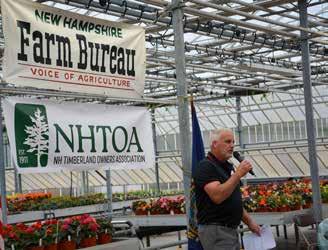
Thank you to Senator Howard Pearl for introducing the candidates for governor at this year’s Summer Picnic!

I was told that summer at NHAITC was a time to relax a little bit after the frenzy that is the month of May with School to Farm days and the intensity that is the National Ag in the Classroom conference in June. I’m not saying July and August are as action packed, but relaxing might be a stretch. Which is good. I like being busy. And while these summer months aren’t the beehive that 1300 fourth graders getting ag presentations at five different locations on eight different days is, or the whirlwind of four days in Salt Lake City with five NH teachers at Conference, things have been steady at the office in Concord.
July is our annual “big” board meeting, both giving me the opportunity to, and in a way kind of forcing me to, reflect on the year that has passed and the steps forward taken over the past 365 days. We’ve worked hard to find out what teachers want to see for support in their classes around agricultural topics. We’ve tried hard to link teachers to both the human resources that will make them more comfortable and confident while looking to get them the funds and materials to engage students in creative, hands on-minds on lessons. We’ve made changes and have adapted to the ever evolving landscape of agriculture in NH, and are working hard to highlight those activities where we as a state excel.
And we’ve done some cool things in the past year. We awarded $2200 to eleven classes in grants for their maple programs across the state. We had 13 participants in our maple contest, the Tucker Mountain Challenge, with Symonds school’s fifth grade class taught by JJ Prior taking the top spot and the $1000 prize that goes with it. We helped two teachers receive CHS classroom grants to further their interest in ag literacy within their schools. We also presented two webinars over the winter and two workshops this spring to specific educator groups as well.
And we’re not done there. We’ve added a workshop series over the summer to help break the ice for teachers and show them ways to easily work ag ed into their curriculum. We’ll be presenting at another workshop day in partnership with the Department of Education as well as attending and presenting at a weeklong workshop in Maine.
So we’ll be busy. Not the breakneck, never get a rest sort of busy the spring is but not the kick back, Jimmy Buffett style, toes in the sand kind of relaxation that had been implied either.
And I’m just fine with that.
Mike Smith, NH Agriculture in the Classroom, nhaitc@nhfarmbureau.org
Someone who is “agriculturally literate” understands and can communicate the source and value of agriculture as it affects our quality of life.
Agricultural Literacy - What is it and how is it shared?
by Deb Robie,
Grafton County Agriculture in the Classroom Coordinator
National Research Council established the Agricultural Education in Secondary Schools Committee to examine the status and forecast the future of agricultural education. The Committee published its findings in a report, Understanding Agriculture: New Directions for Education (1988), and defined agricultural literacy as, “...possessing knowledge and understanding of our food and fiber system. An individual possessing such knowledge would be able to synthesize, and analyze, and communicate basic information about agriculture. Basic agricultural information includes the production of plant and animal products, the economic impact of agriculture, its societal significance, agriculture’s important relationship with natural resources and the environment, the marketing of agricultural products, the processing of agricultural products, public agricultural policies, the global significance of agriculture, and the distribution of agricultural products.”
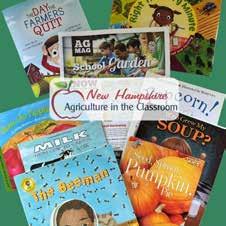
That information was from 1988 and yes, that was a long time ago. Thank goodness dedicated groups from USDA, the American Farm Bureau Federation, and National Agriculture in the Classroom are working together, creating programs to ensure that there will be agriculturally literate students and adults in the future.
Almost 20 years ago I became the Ag in the Classroom Coordinator for Grafton County Farm Bureau. Over the years I’ve had the opportunity to help educate students and teachers about agriculture here in New Hampshire, and beyond. Sometimes that is setting up Ag Days at schools where students and teachers are exposed to all the forms of agriculture around them. Sometimes it’s going to a school and talking to anywhere from 10 to 100 students to give lessons that align with a subject they are studying in regular classes. Sometimes it might be going in and reading a particular book to a class, putting up a display on school bulletin boards, helping to find and write grants for schools to use for their students, offering afterschool program classes, or offering enrichment classes during the time of the school skiing program or, or, or…
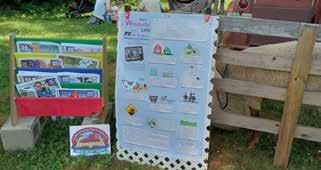
Deb Robie shares ag literacy projects at local farmers markets alongside her sheep, (above), as well as during “Ag Days” at Grafton County schools (below are thank you notes from students).

Does that make me someone special? Nope. It just means that I get to talk and teach about the importance of agriculture with a group of students and teachers who may not see their own connection to agriculture.
However, as fantastic as that might all be, I’m only one person. The real validation of Agriculture in the Classroom and its resources comes when teachers independently seek AITC curriculum to share with their students when I’m not there!
This year, for the first time, New Hampshire had five teachers attend the 2024 National Agriculture in the Classroom conference held in Salt Lake City, Utah. One of those was the winner of the NHAITC Teacher of the Year Award, Valentina Tyrina, who is from right here in Grafton County. This was her third time attending the national conference. The other four teachers were from other schools in the state but had never been to a conference. One had never even flown before, but we got her there and back with no problems. I was able to meet them at the airport and was able to talk with them on the trip out there. These teachers were not from schools that have “real” agricultural teachers like FFA programs. These were regular classroom teachers that had been exposed to NH Agriculture in the Classroom programs and decided to attend this year’s conference. One of the teachers sent me a message after we returned that said, “I really felt that the convention was one of the best I have ever been to. It was very well organized. The resources that were provided to the participants at the convention were amazing. I felt very supported and that I walked out of there with amazing resources and some great connections with people from across the country.”
All of the teachers said they were going to be able to take all they had learned at this conference and incorporate the lessons right into their classrooms this coming school year.
Next year the National Agriculture in the Classroom conference will be held in Minneapolis, Minnesota. If every county Farm Bureau could help cover even some of the costs of a teacher wanting to go to that convention just think of the impact their new agricultural literacy would have on our students.
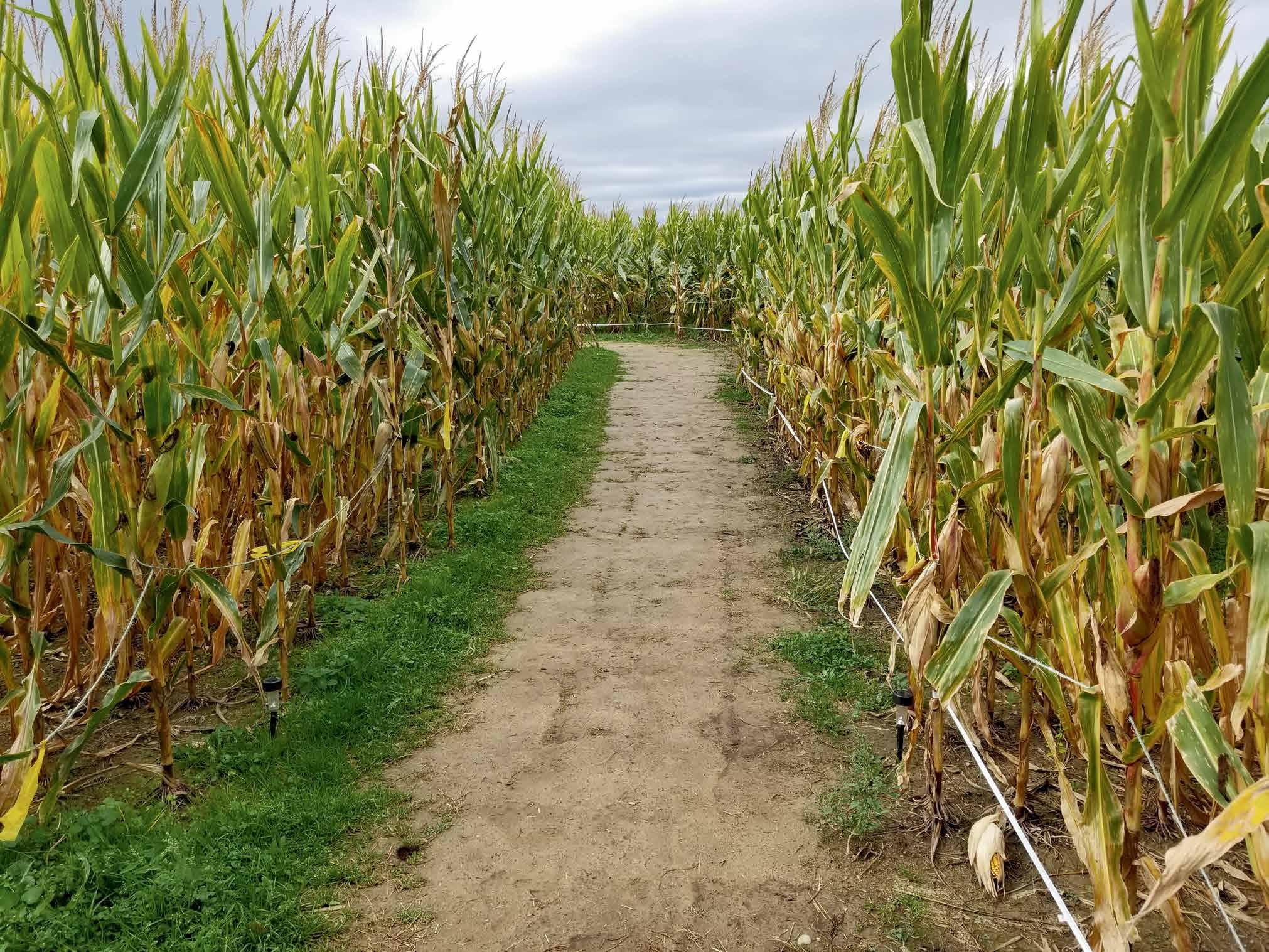

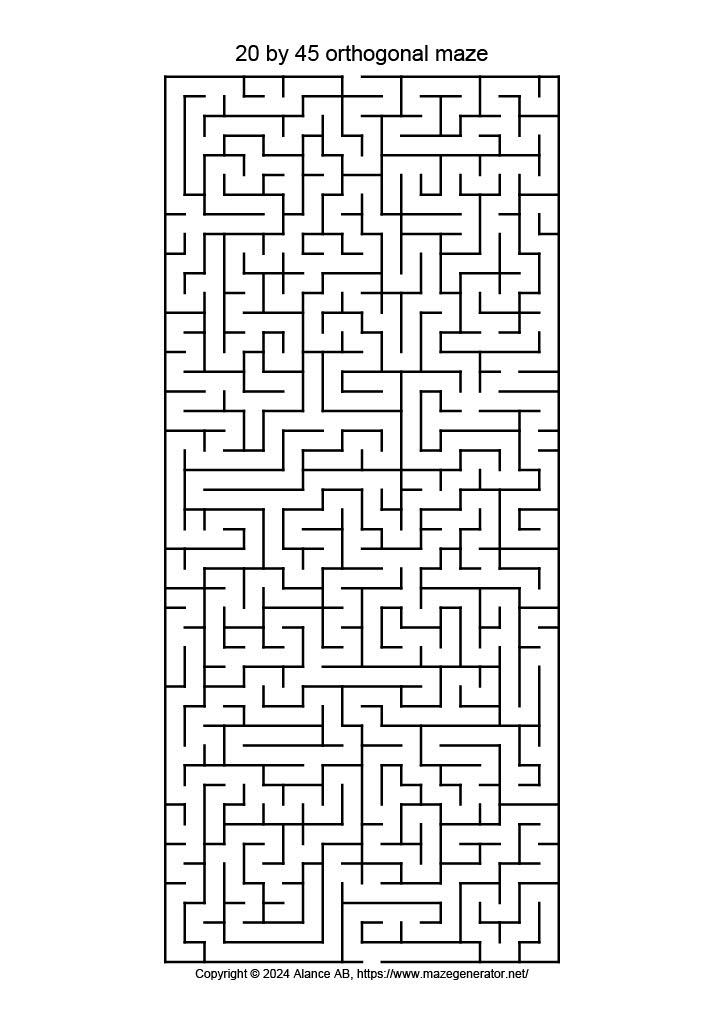


2ND ANNUAL

FOOD • MUSIC • FESTIVITIES
OCTOBER 11, 2024
5:00PM MCFB ANNUAL MEETING
6:00PM FOOD & DANCE
DELL LEA, 81 PLEASANT ST, CHICHESTER, NH
ANYONE IS WELCOME TO JOIN US FOR THIS SPECIAL EVENT!
REGISTER ONLINE: bit.ly/mcfb-barn-dance





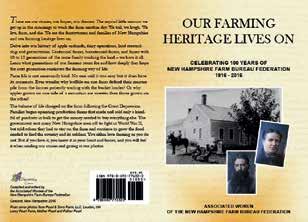

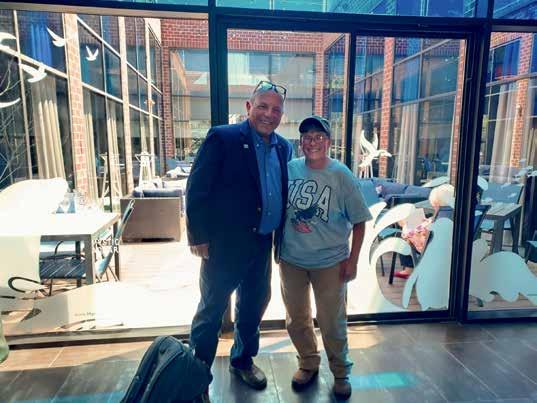

Zippy Duvall
NHFB President Joyce Brady
